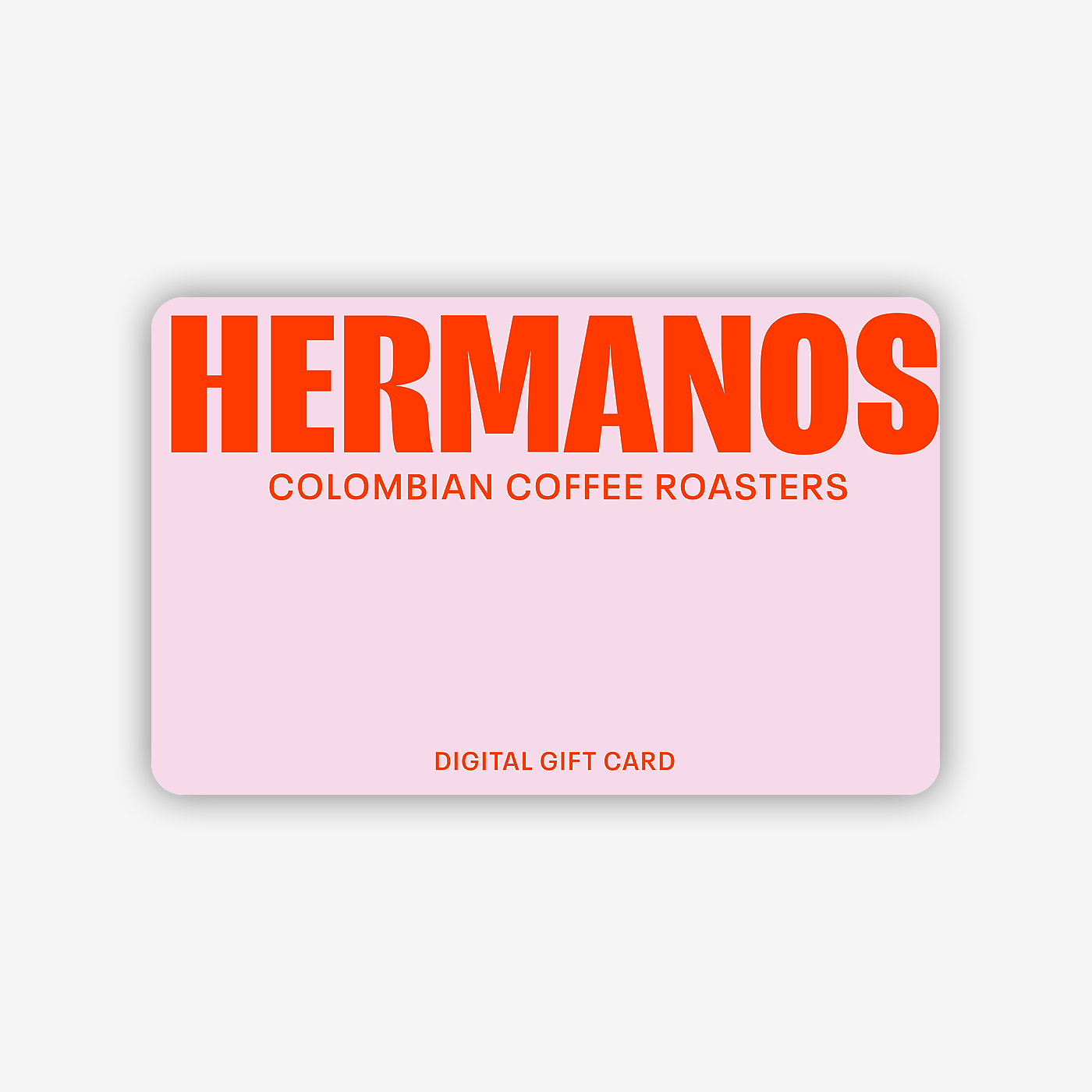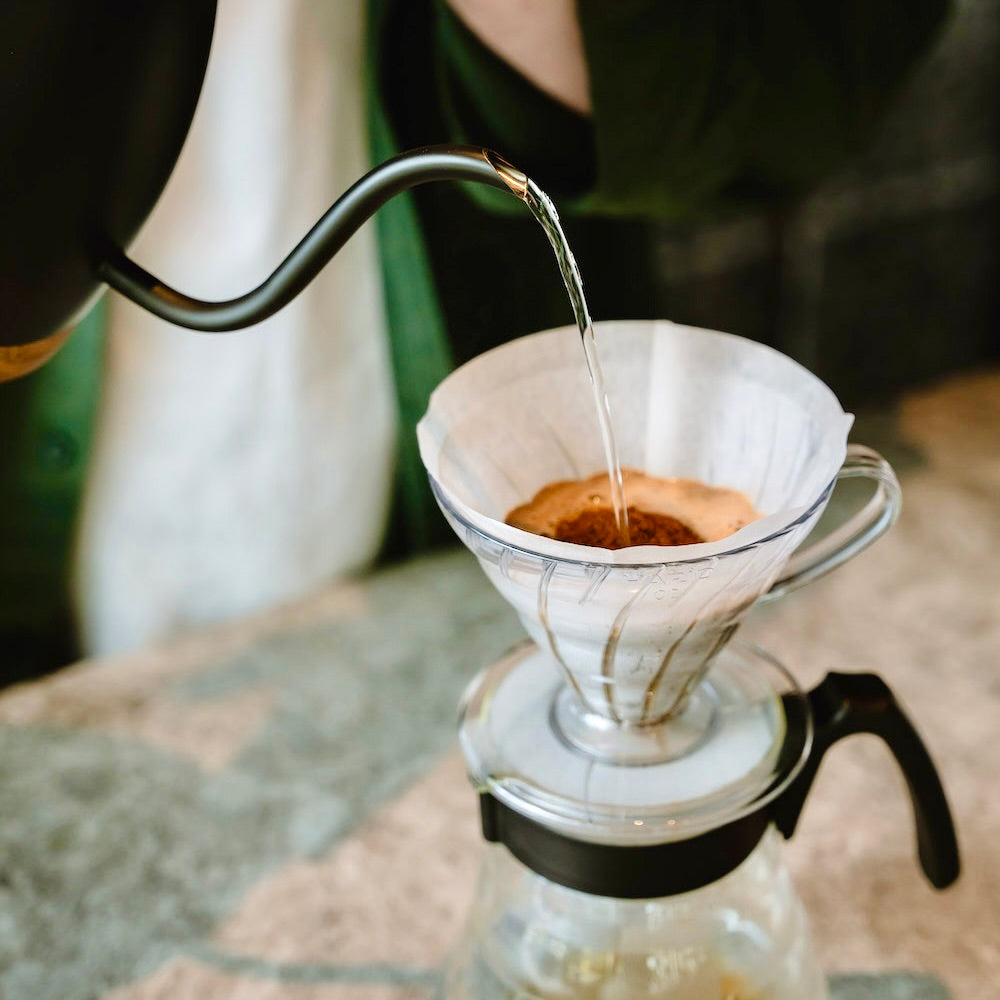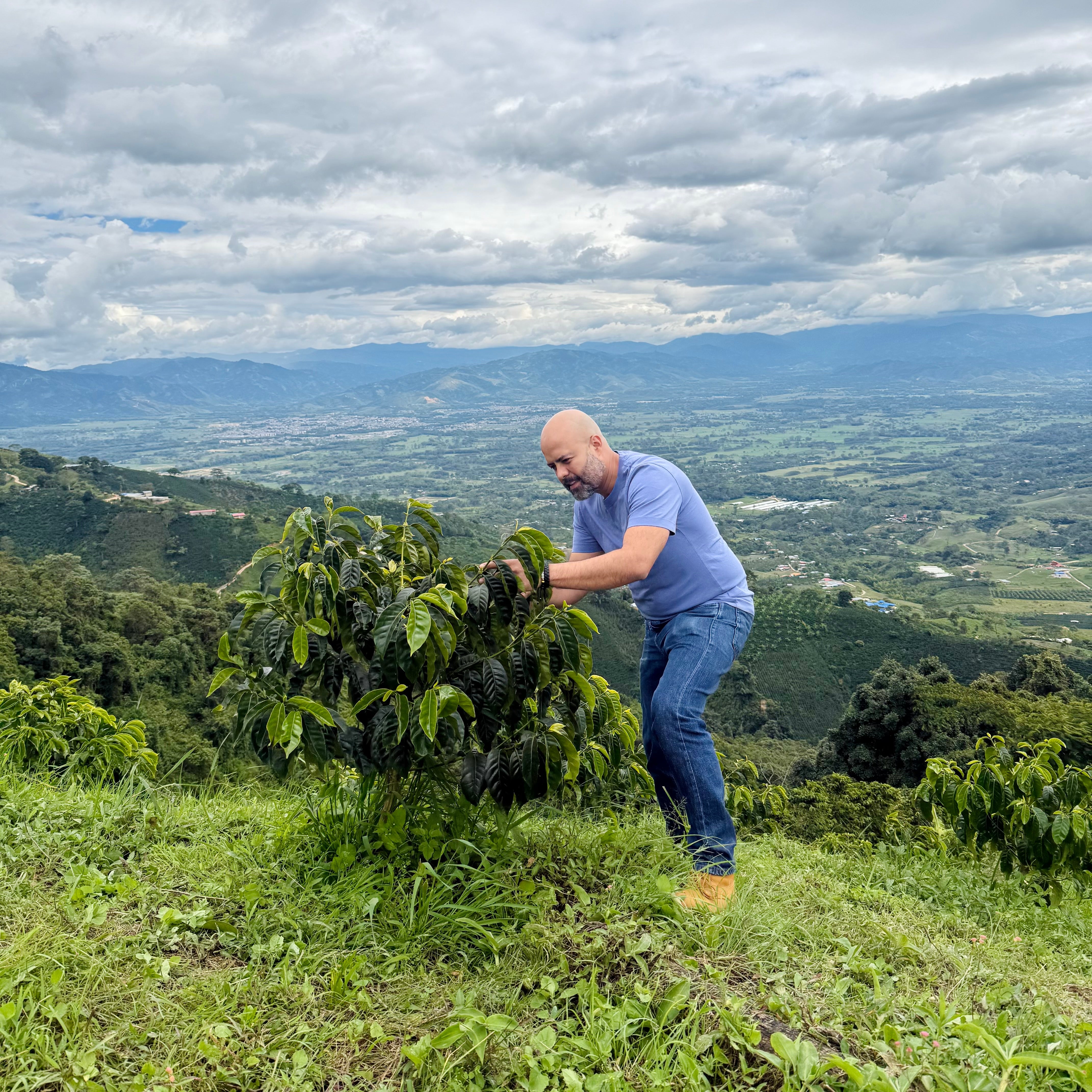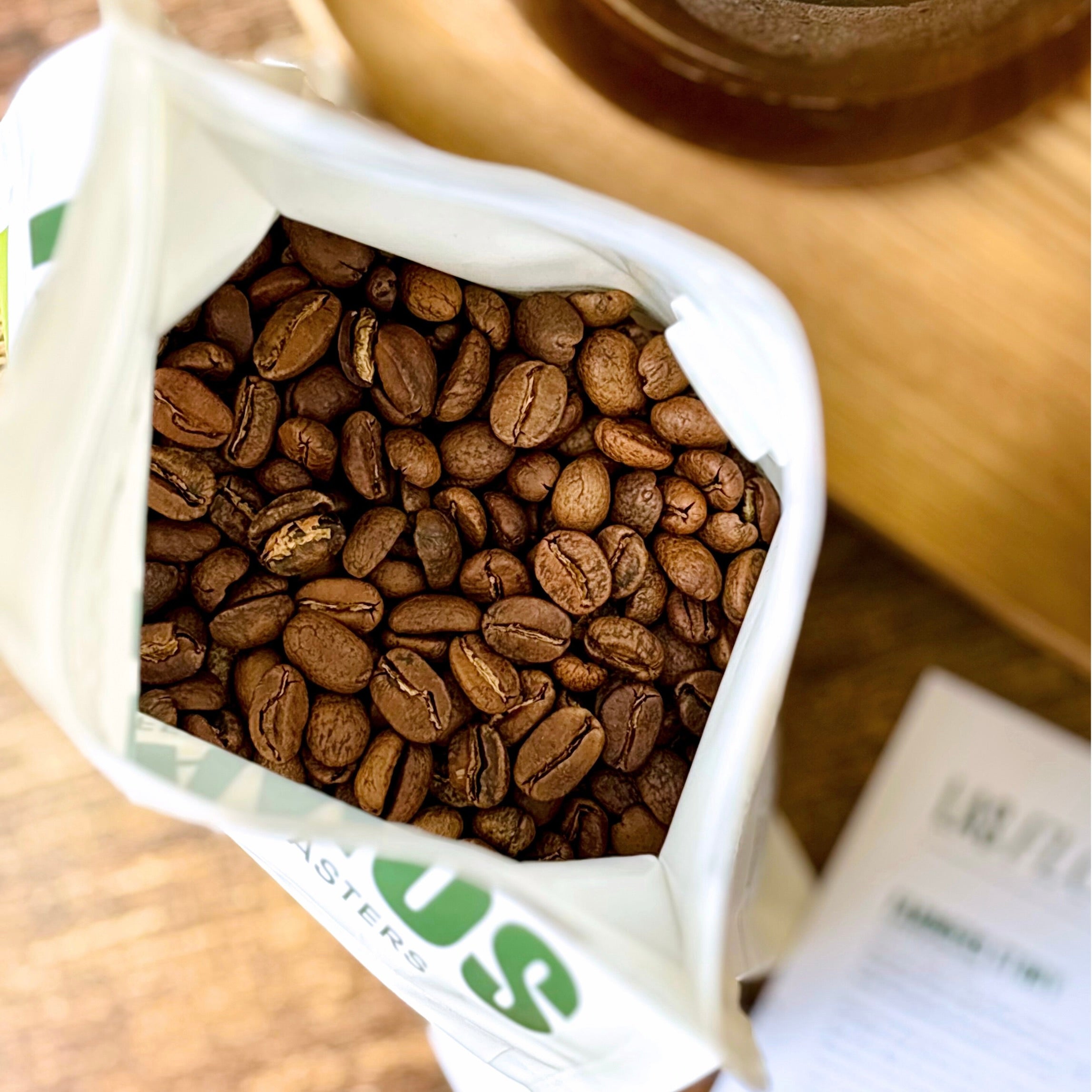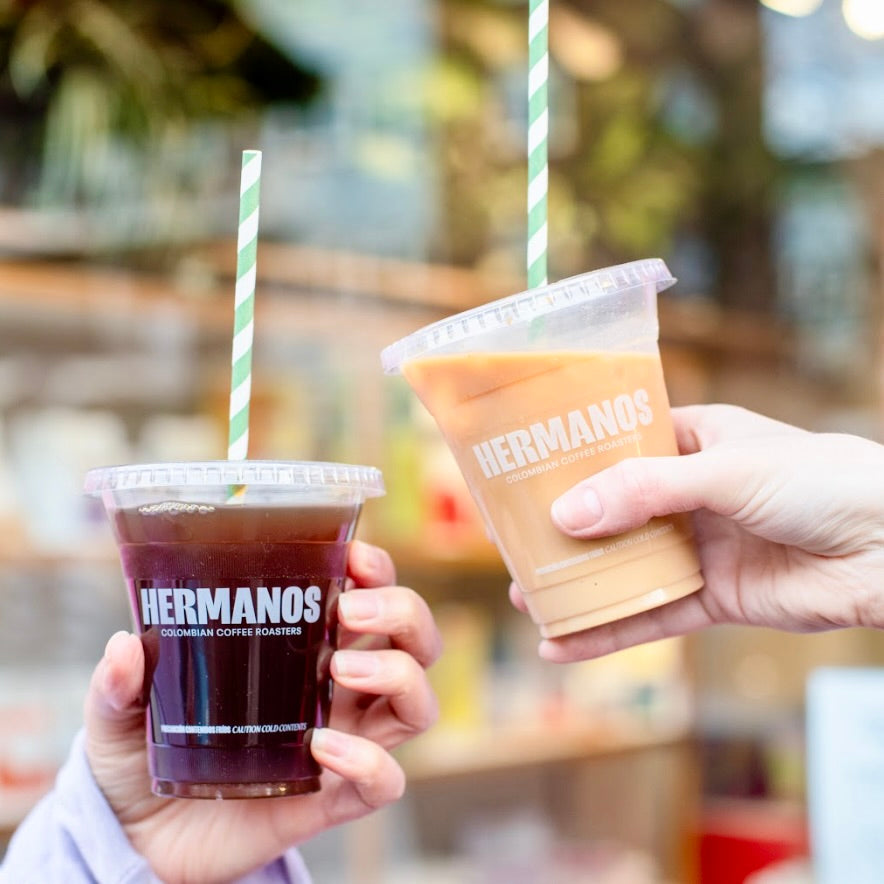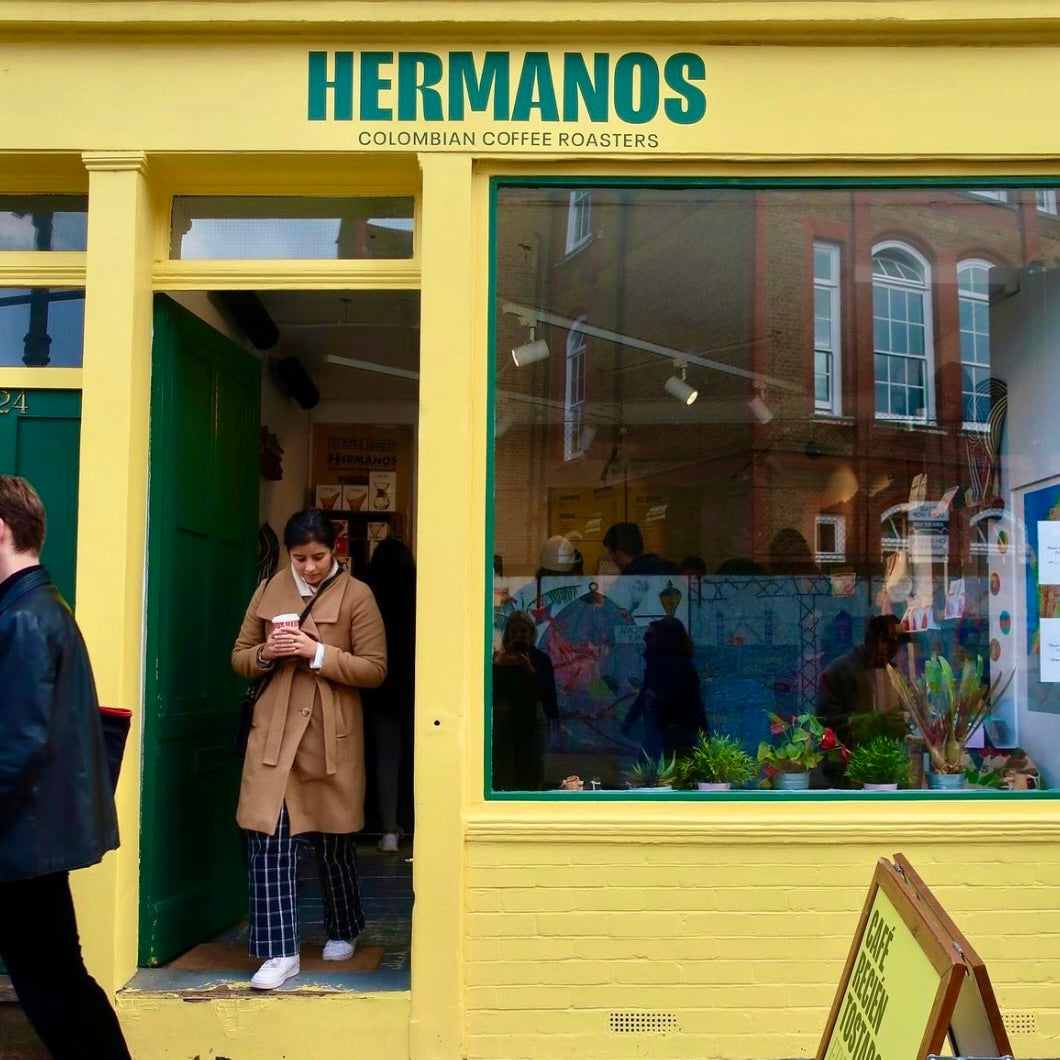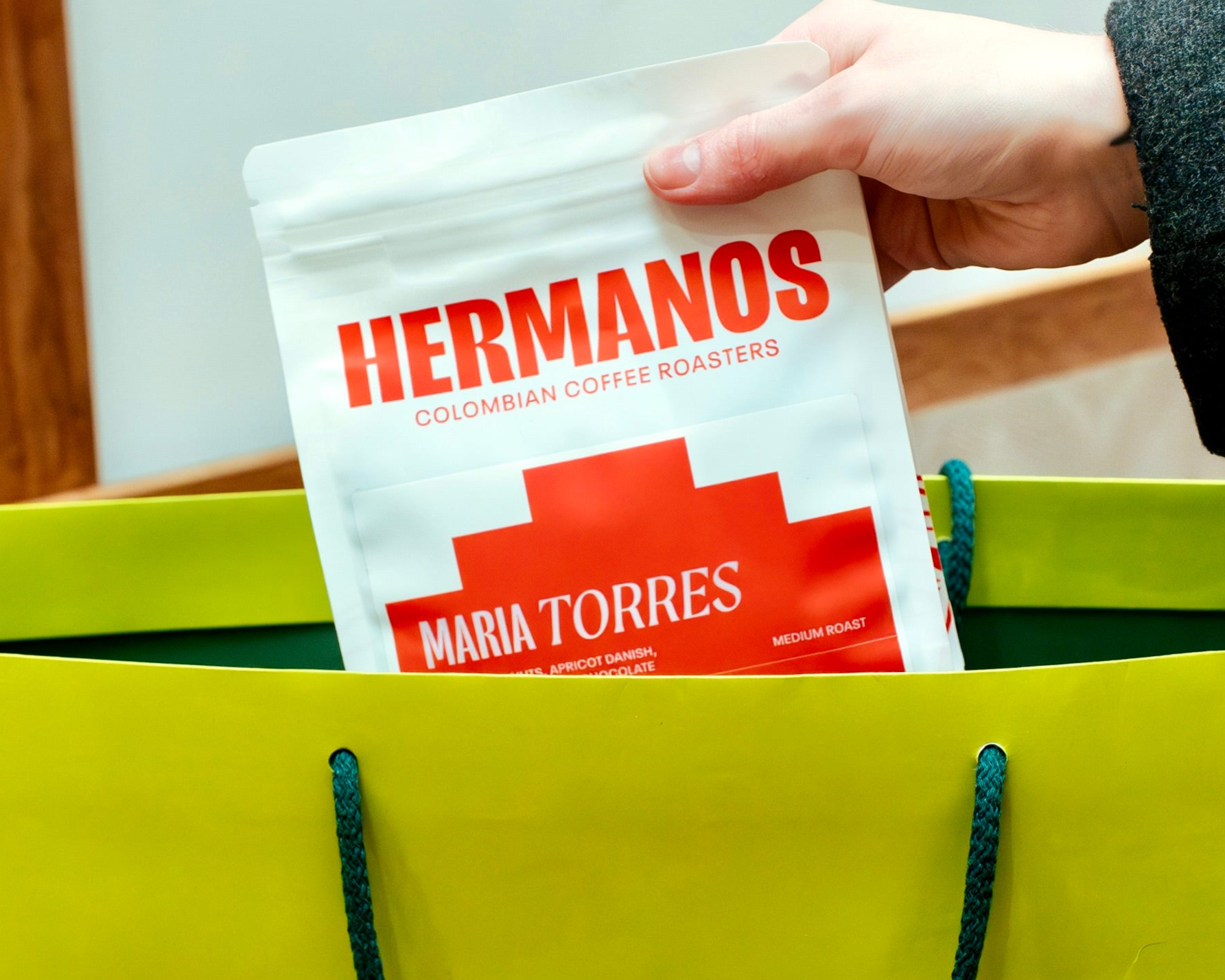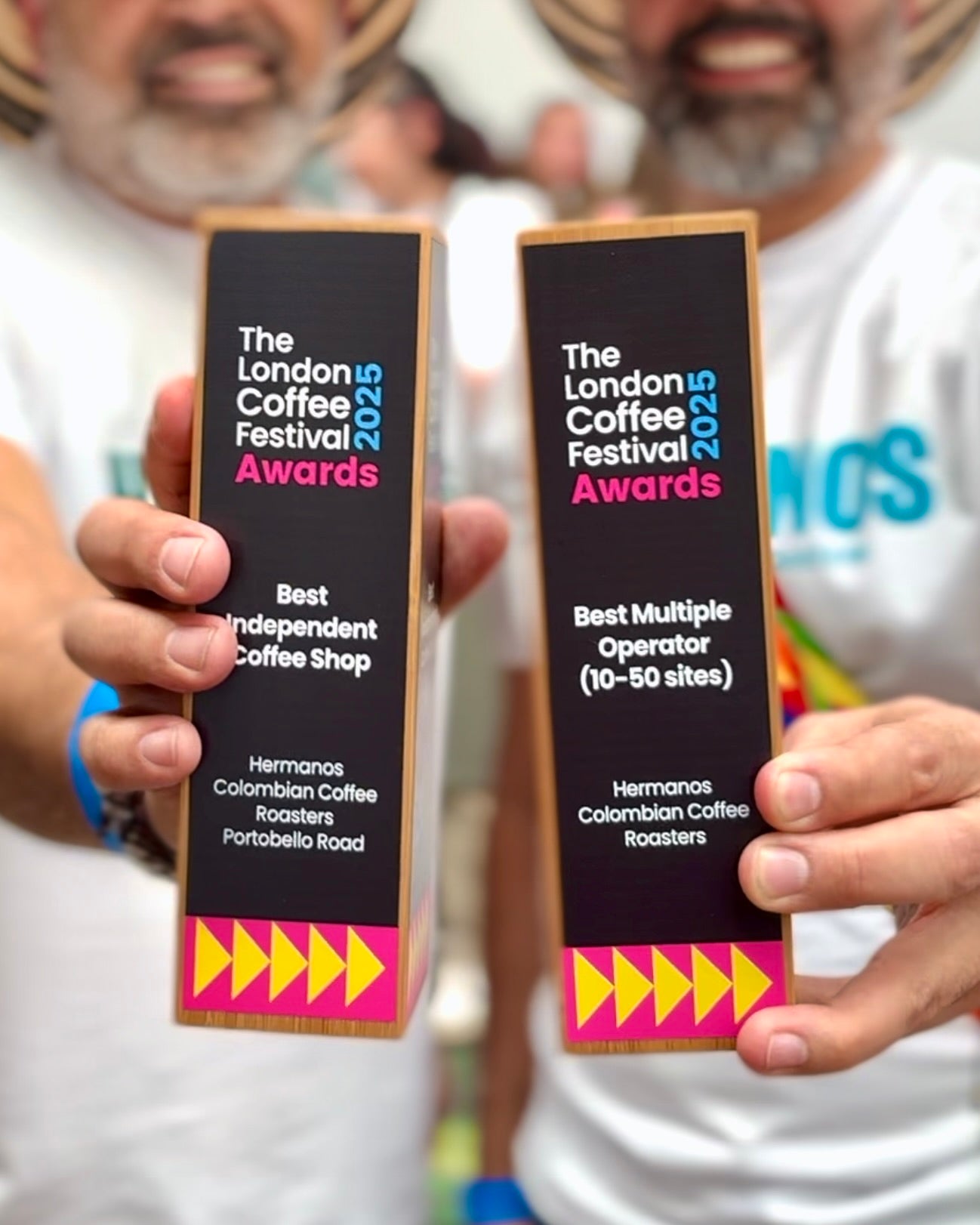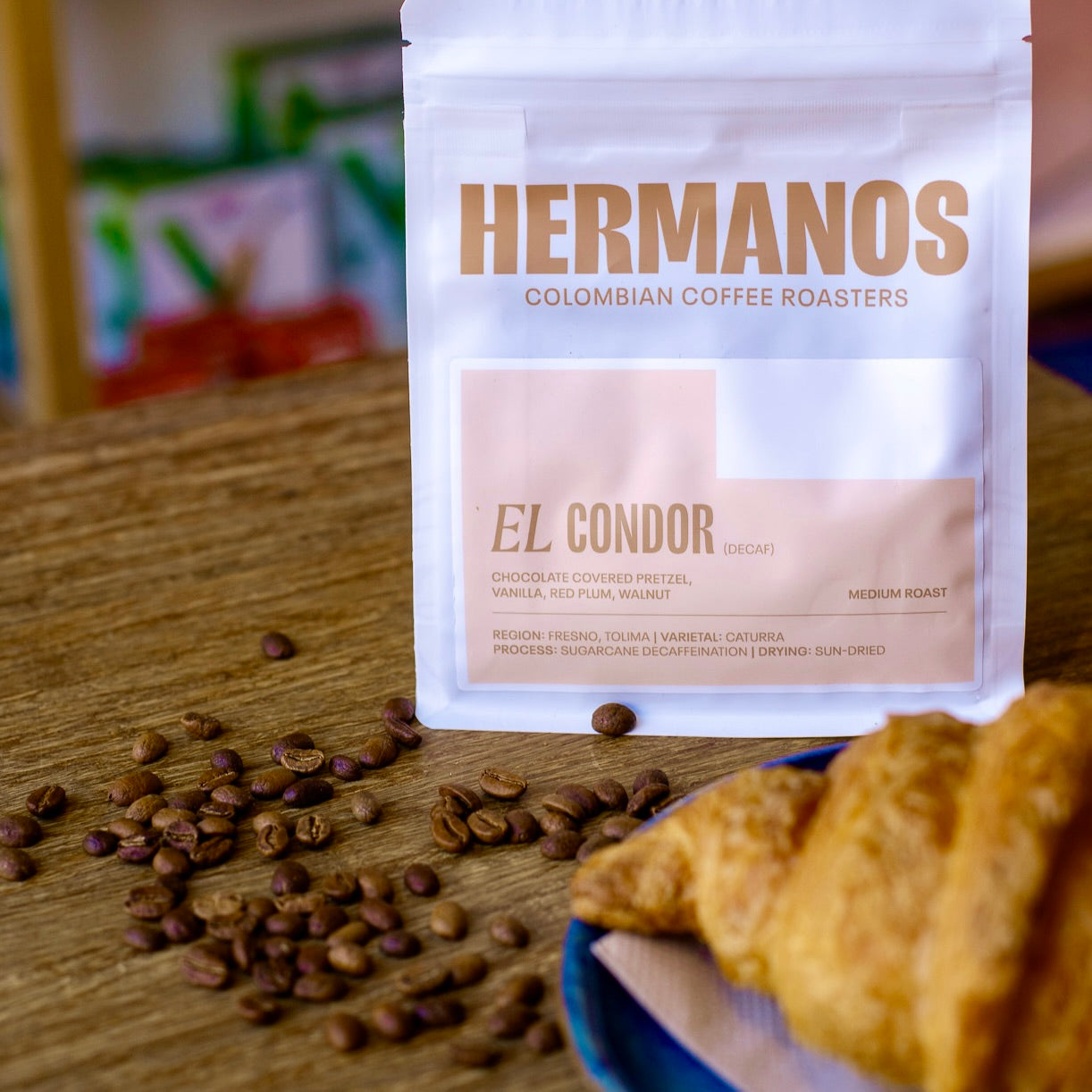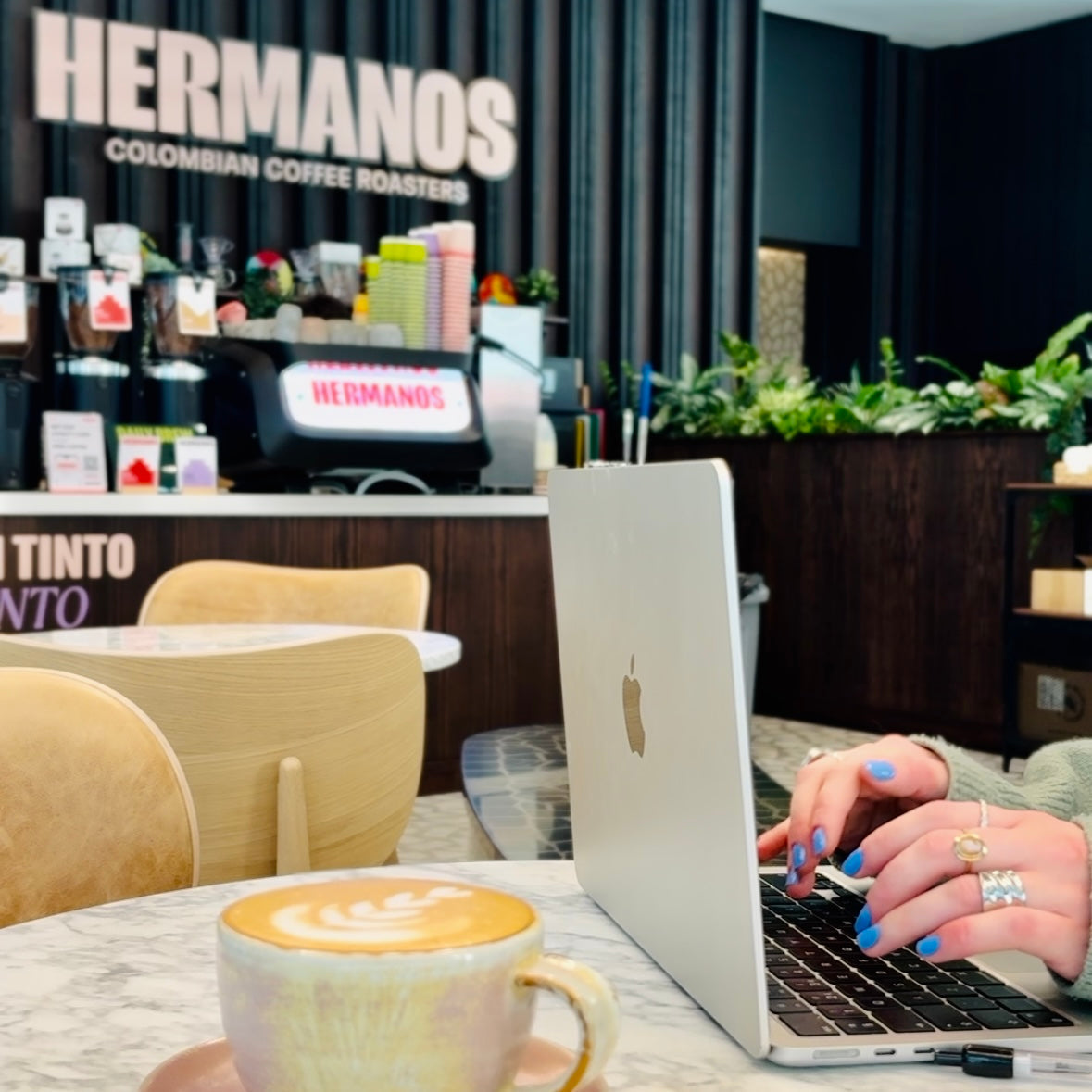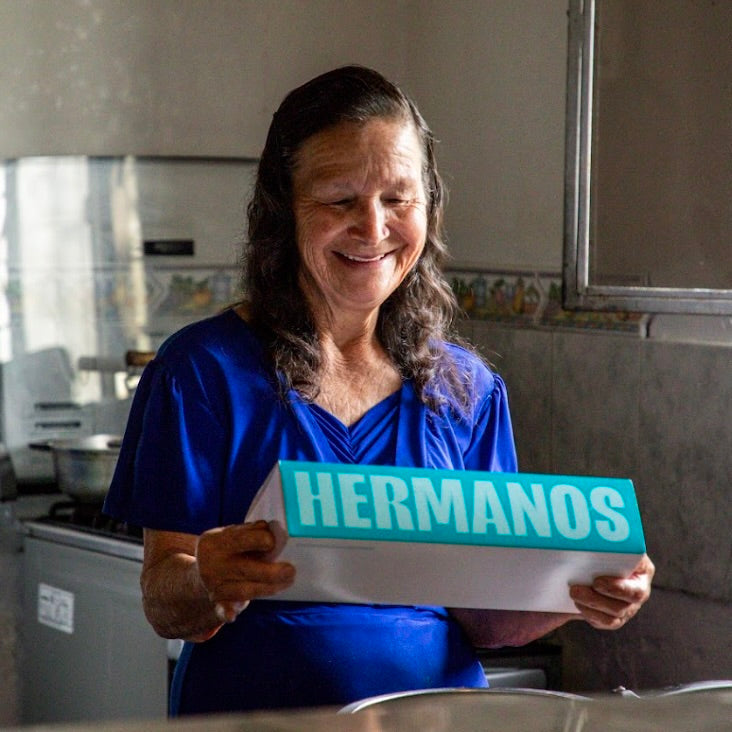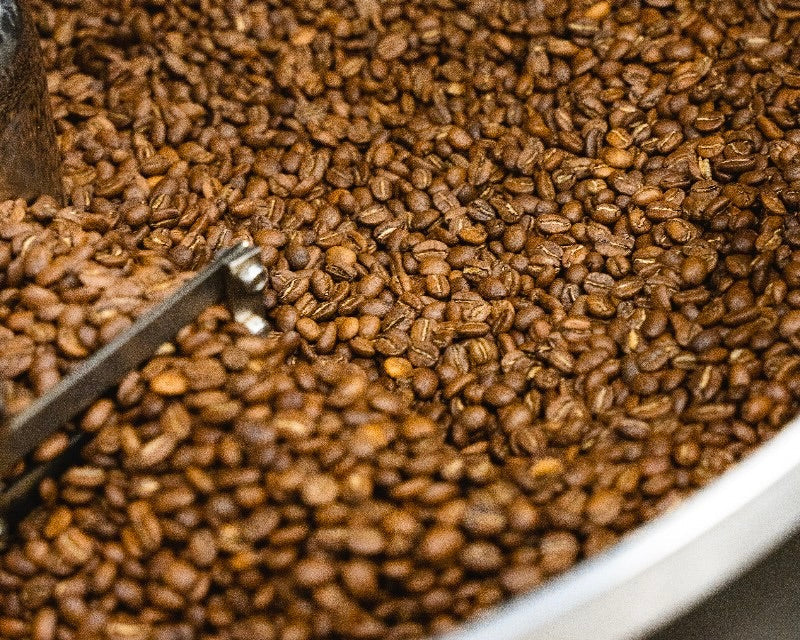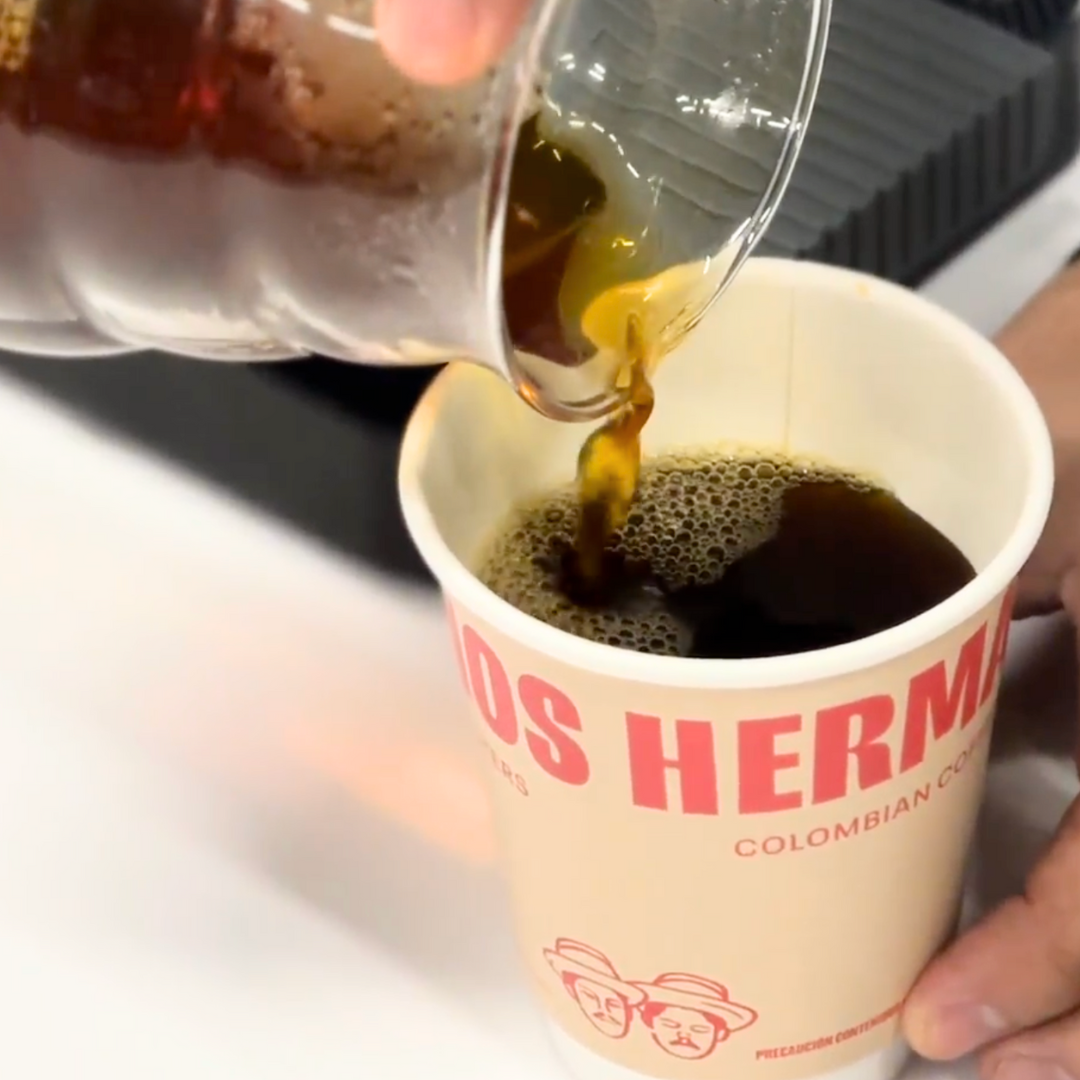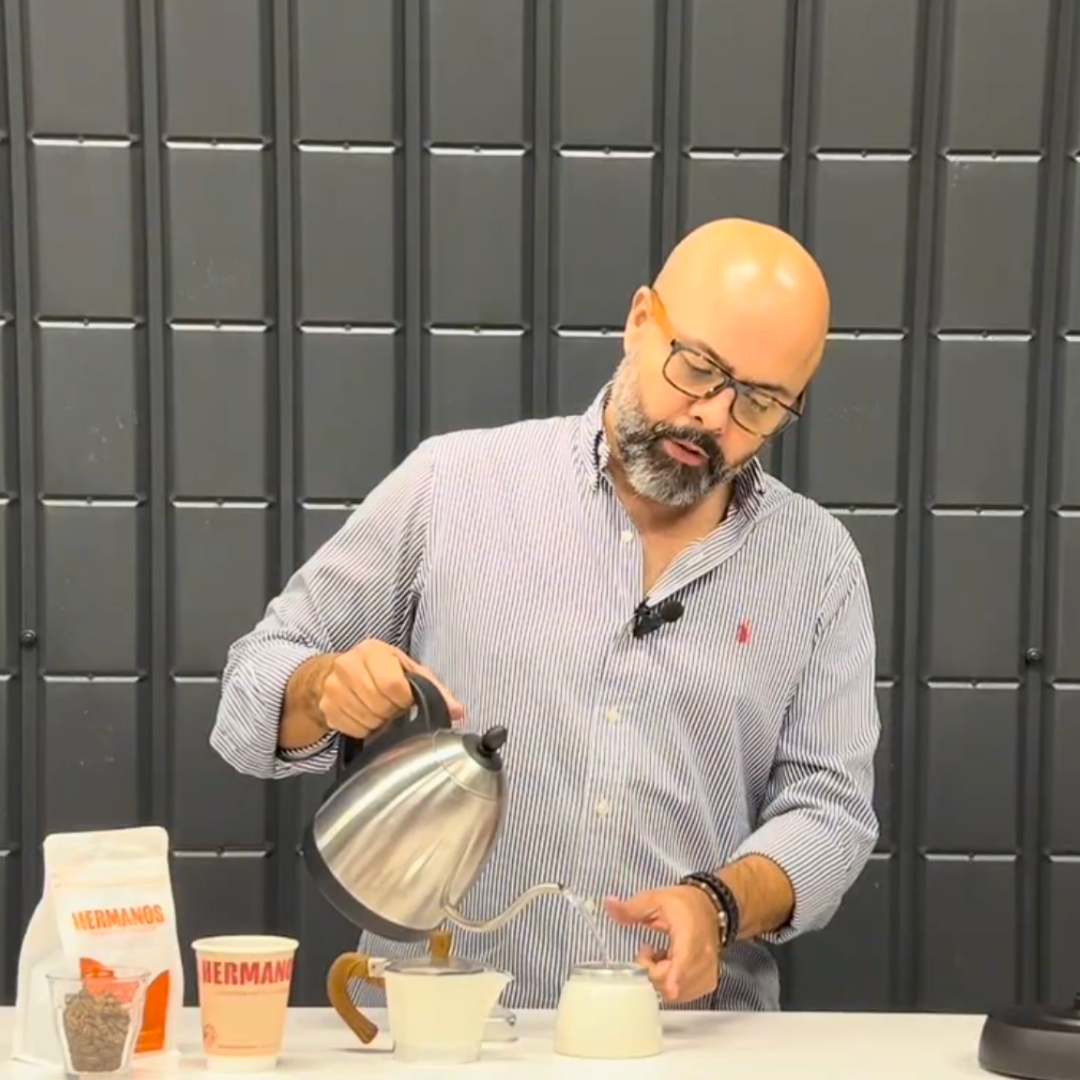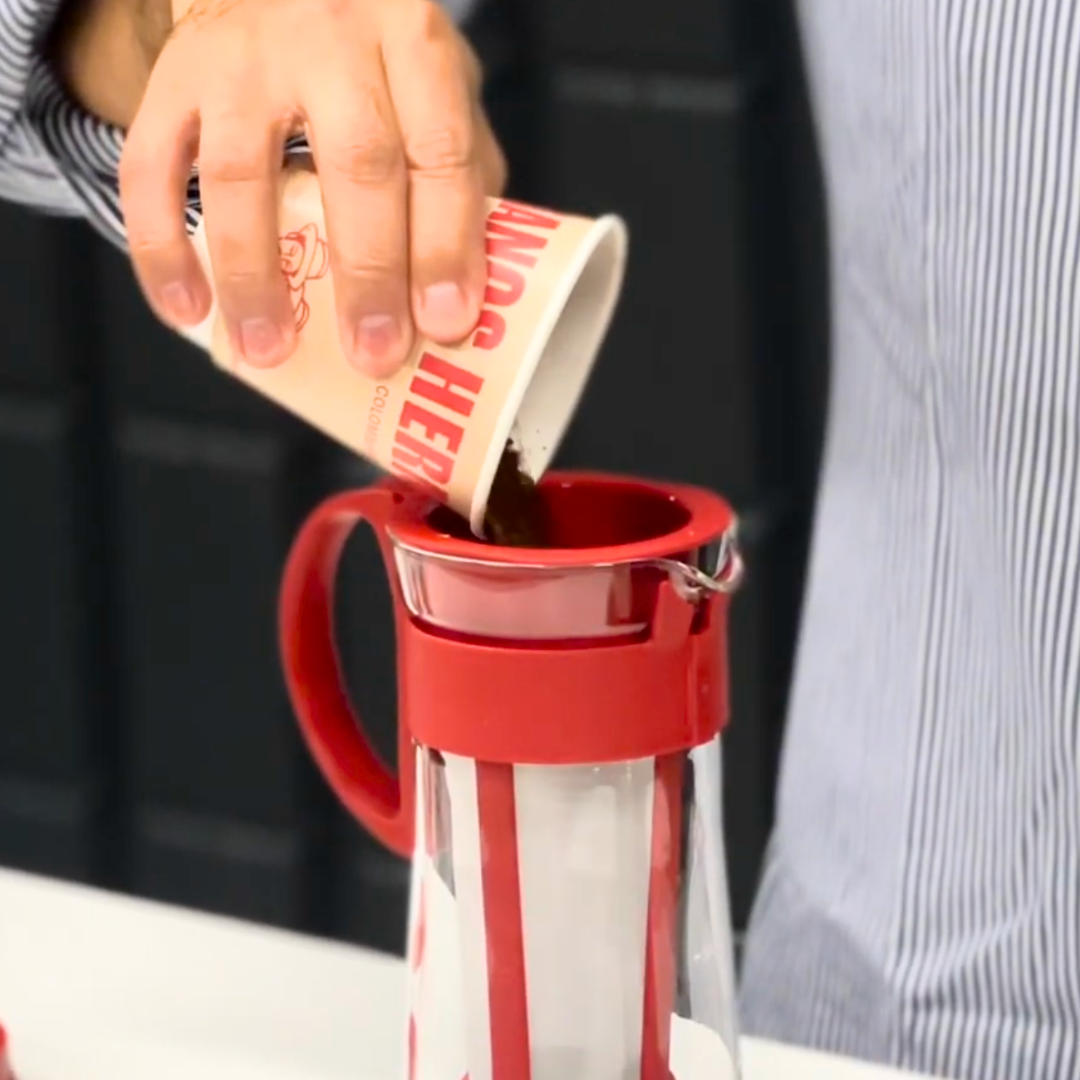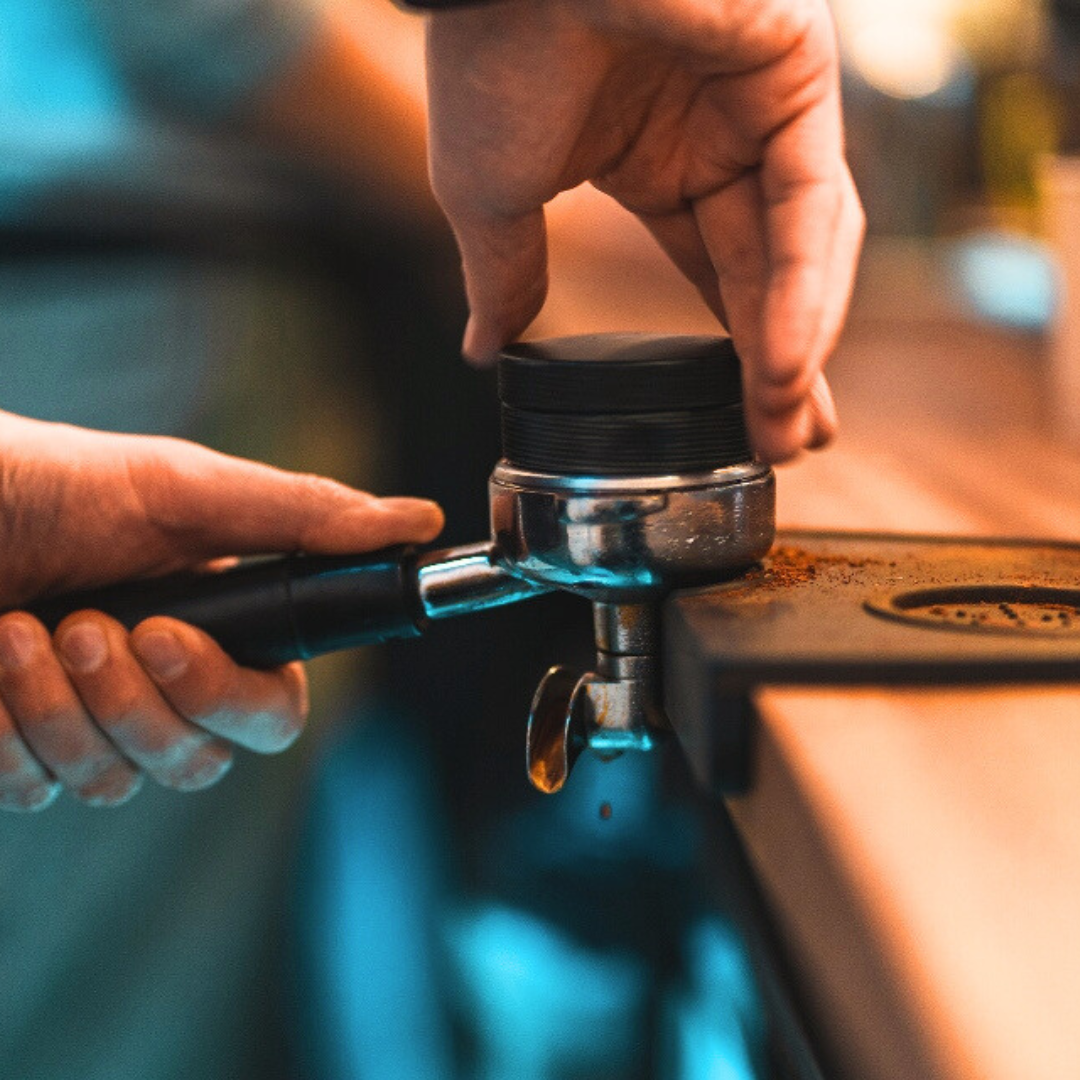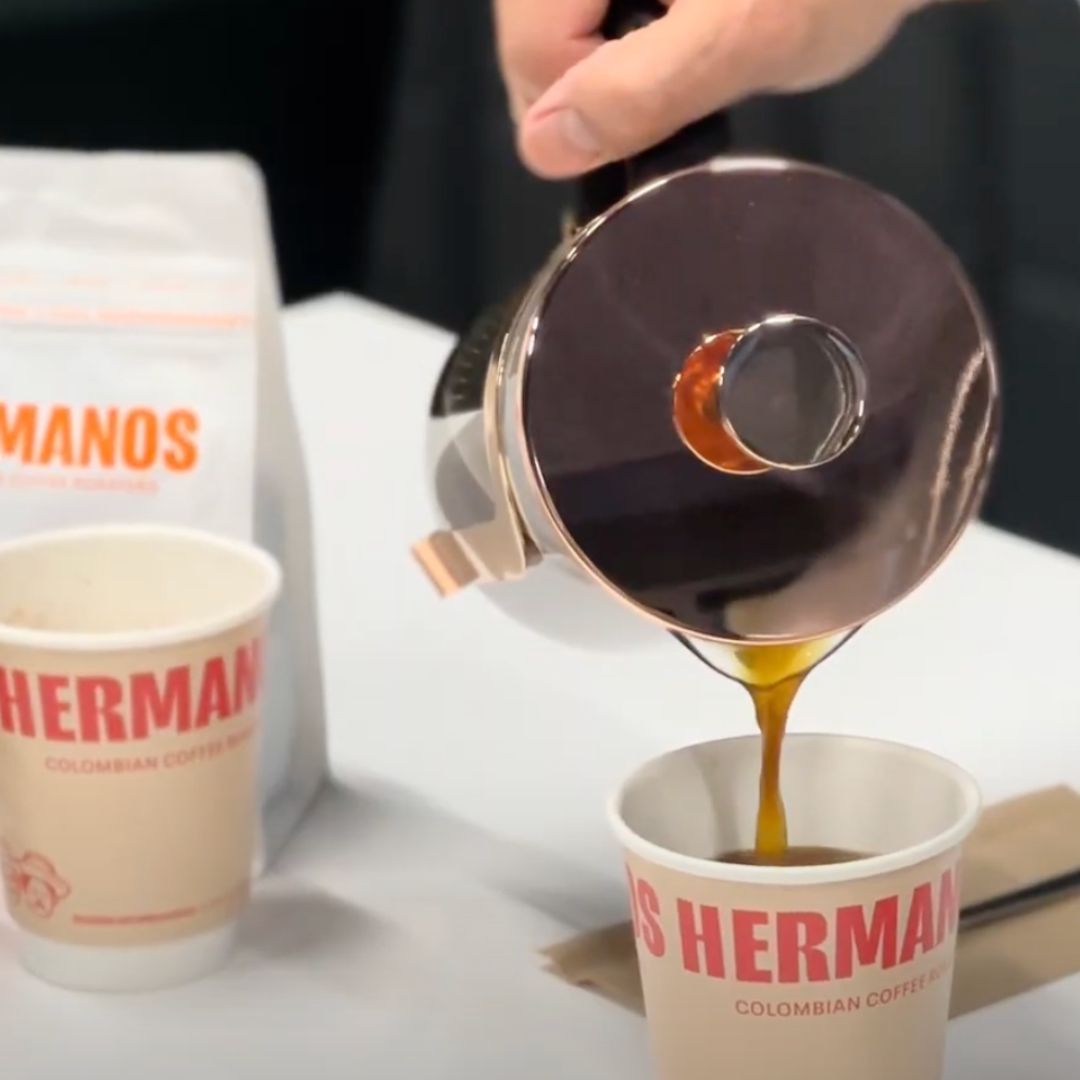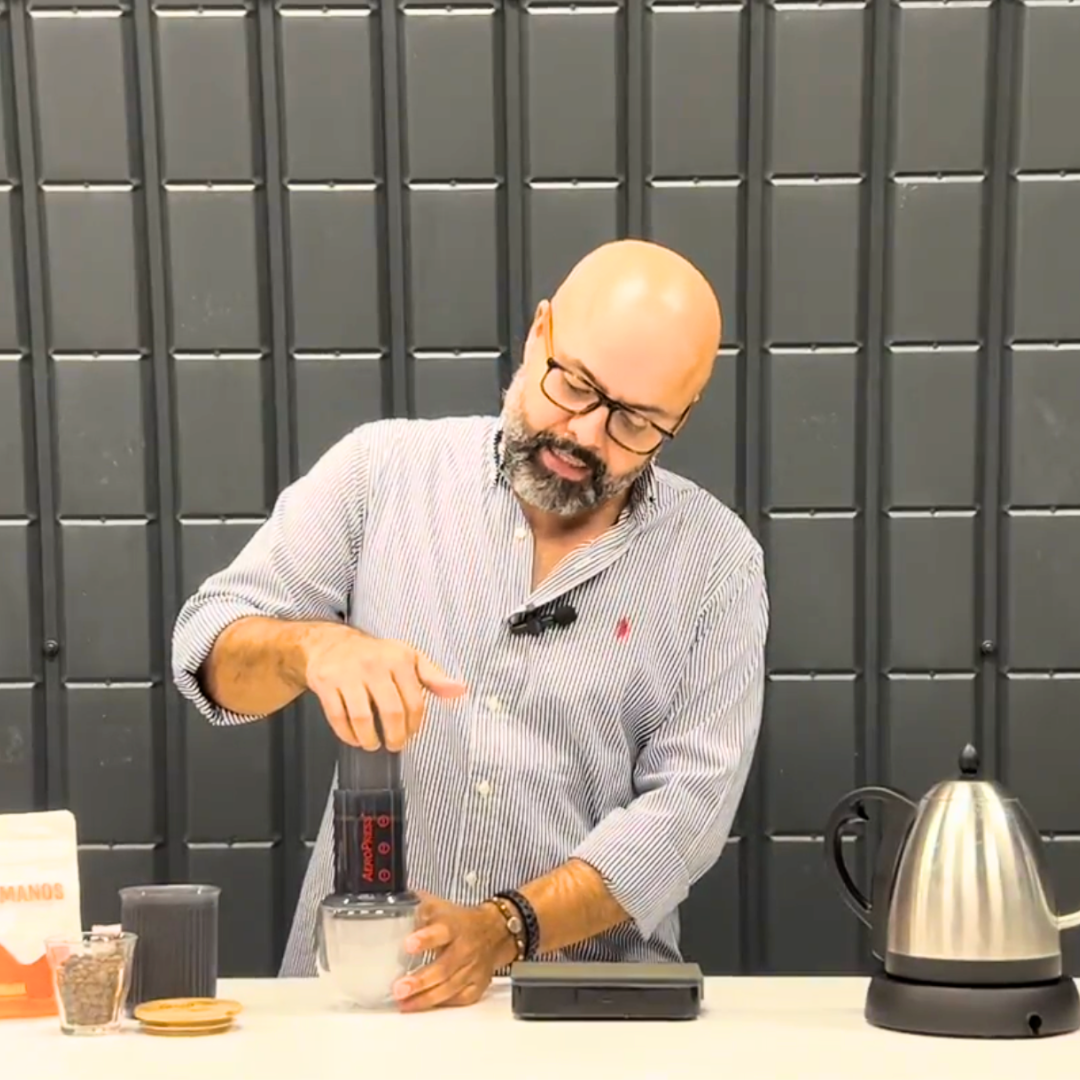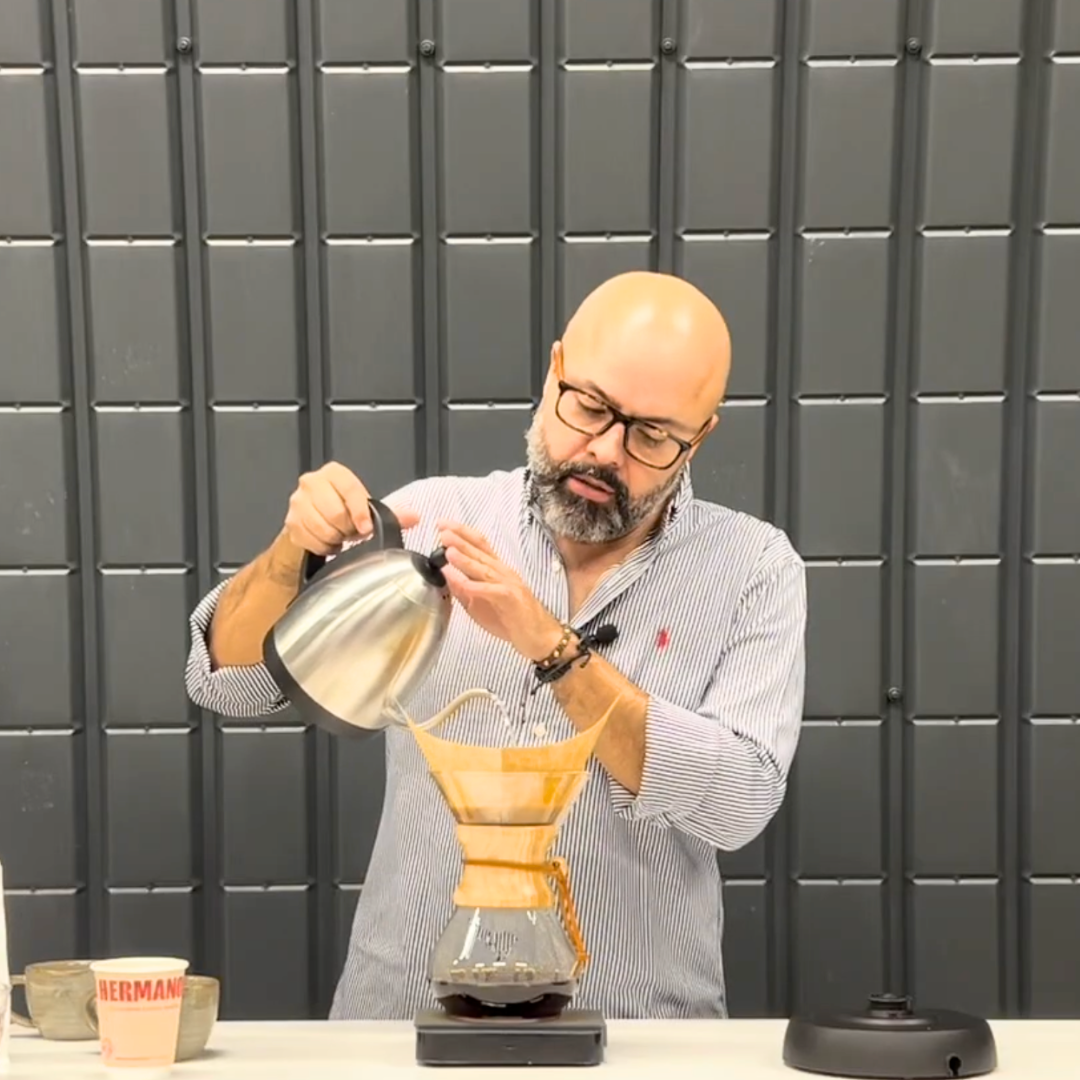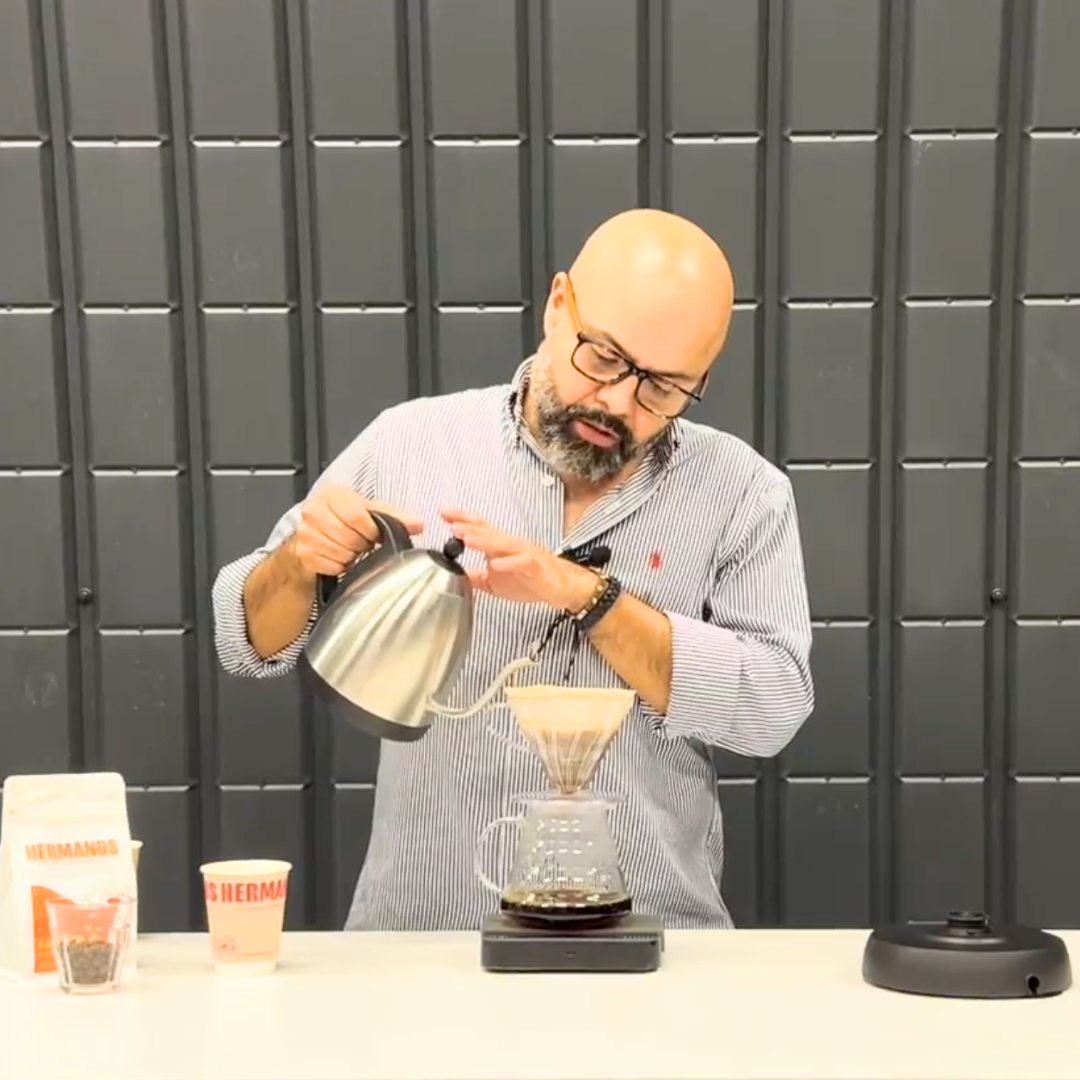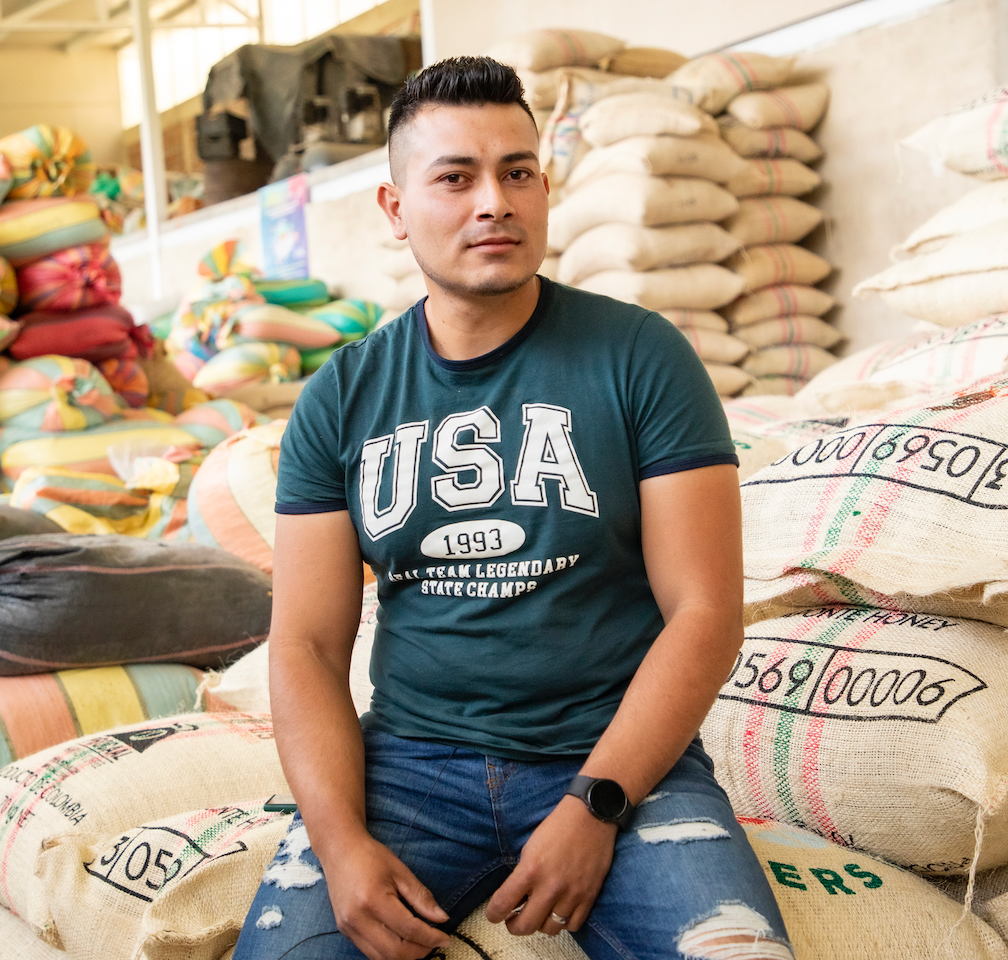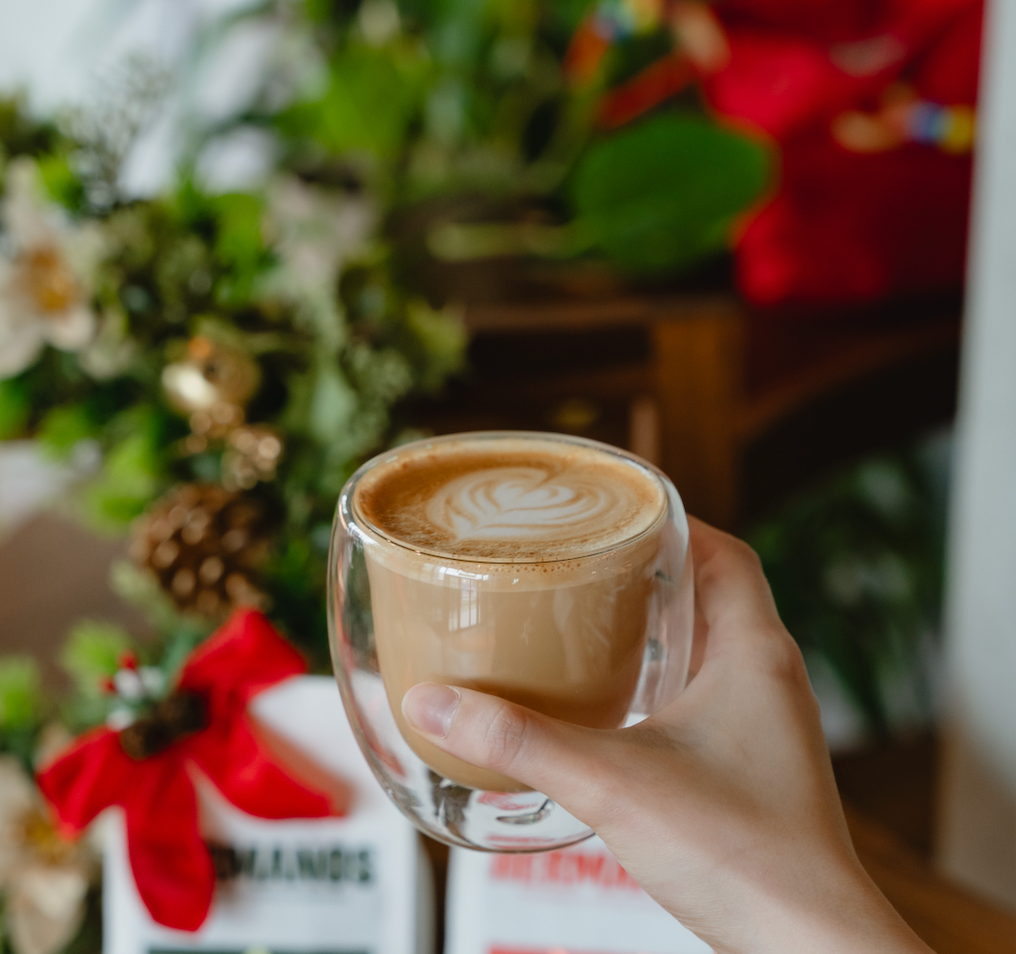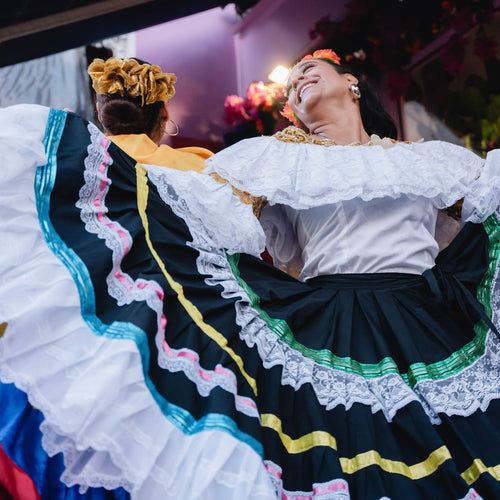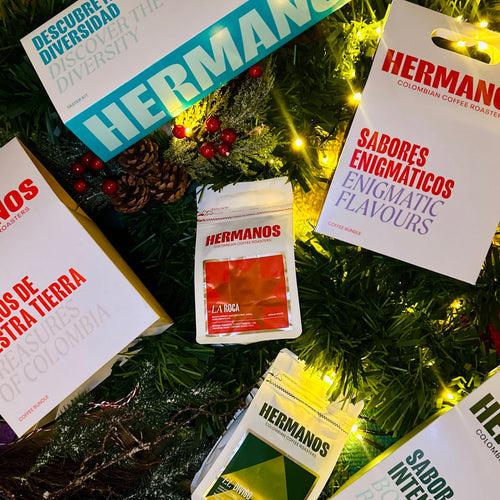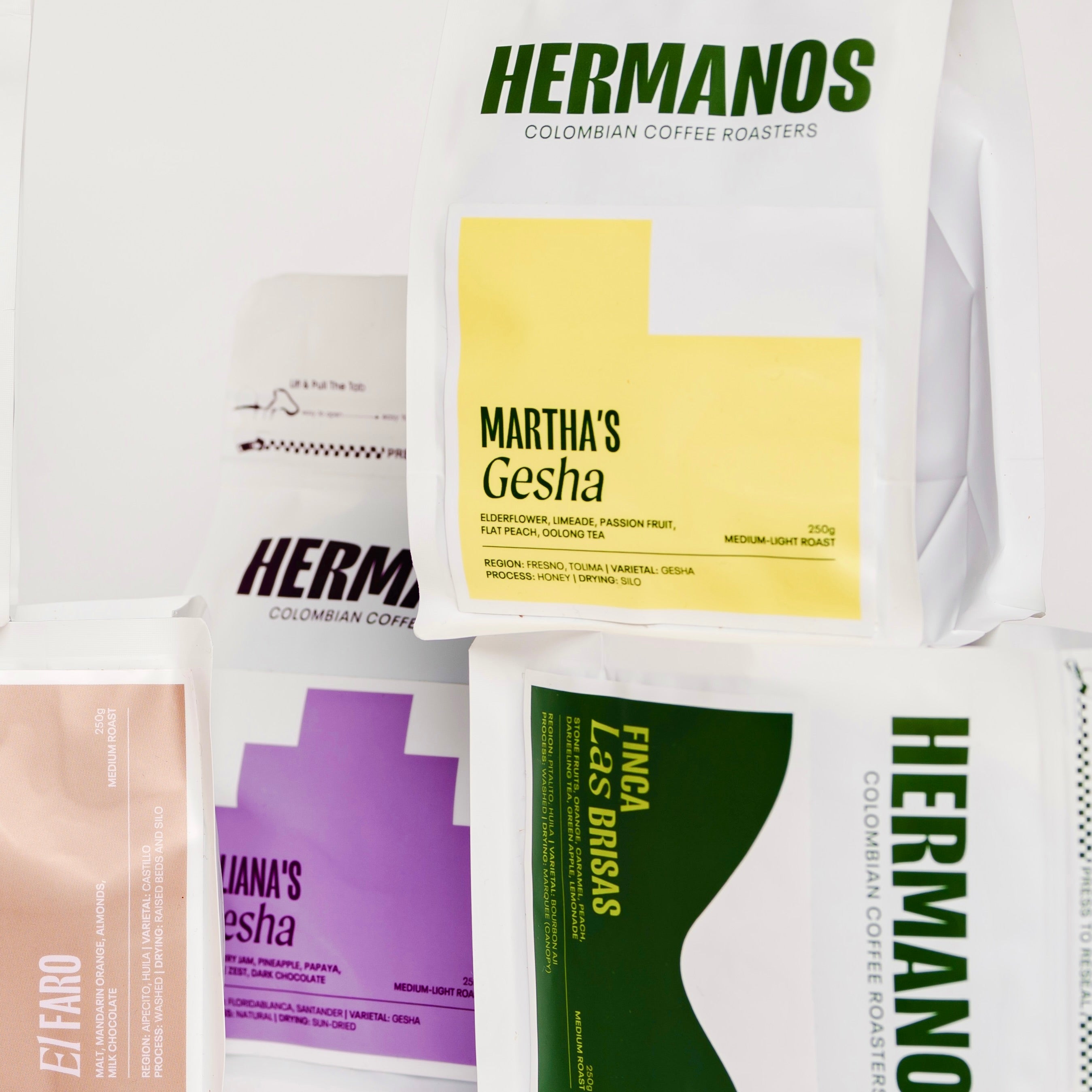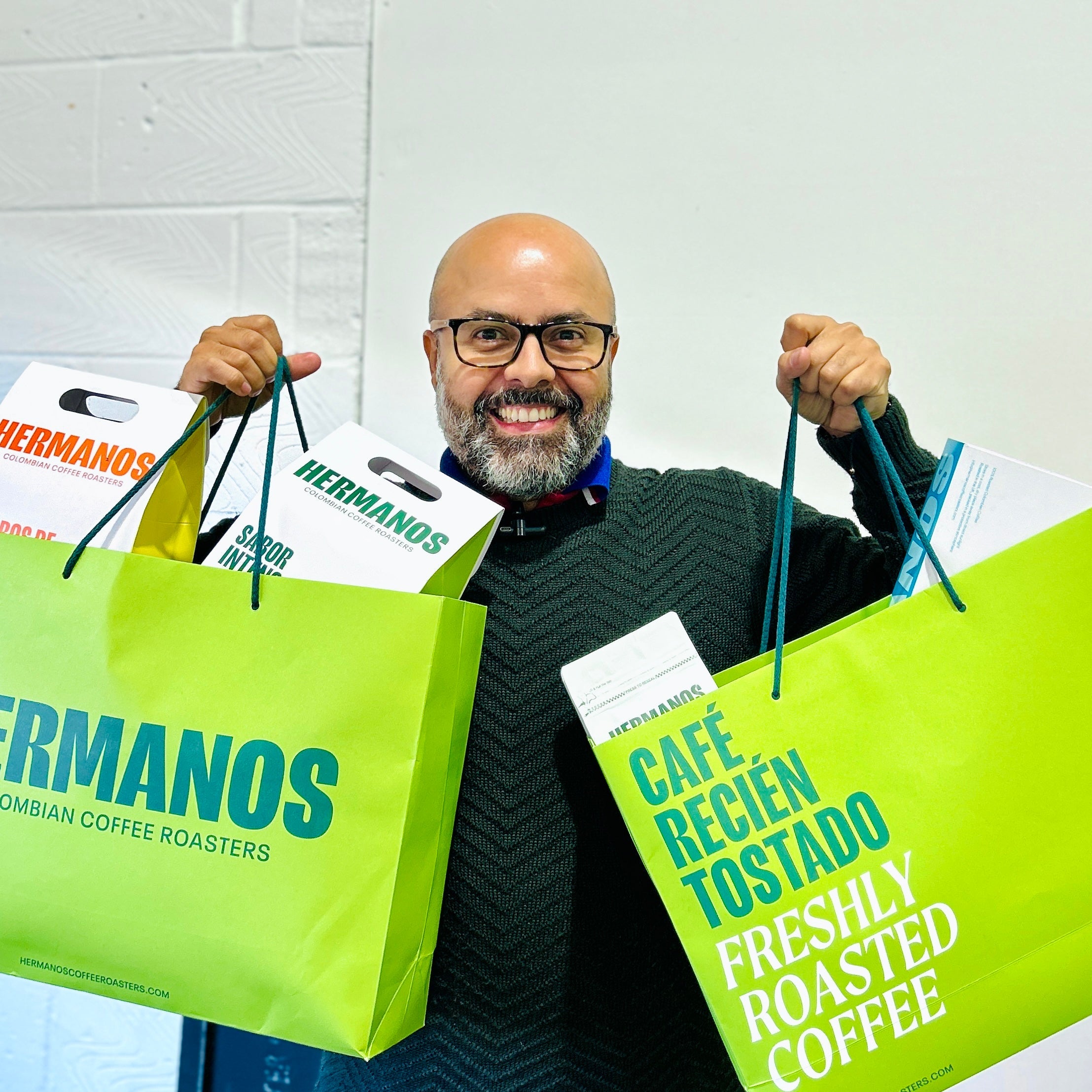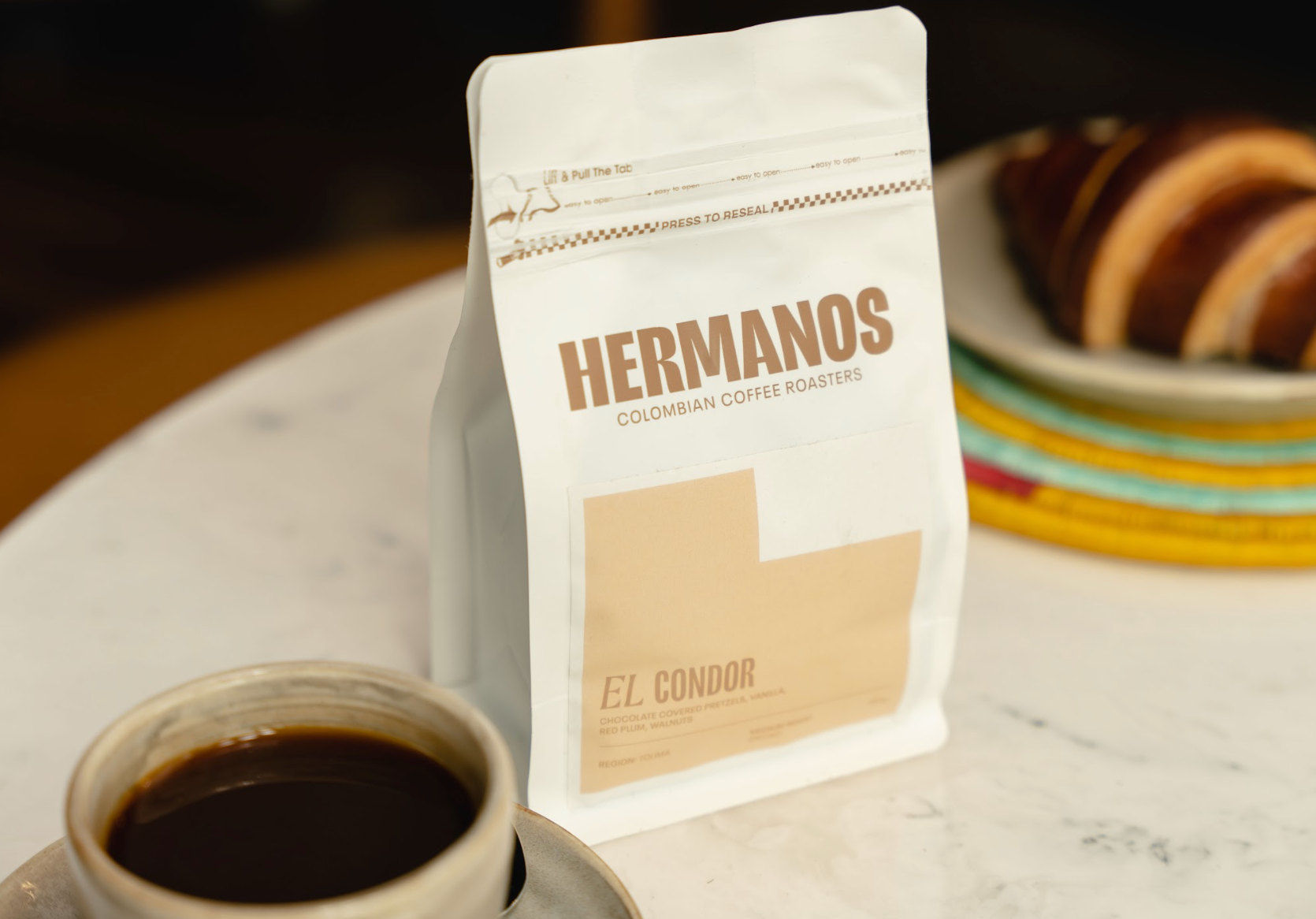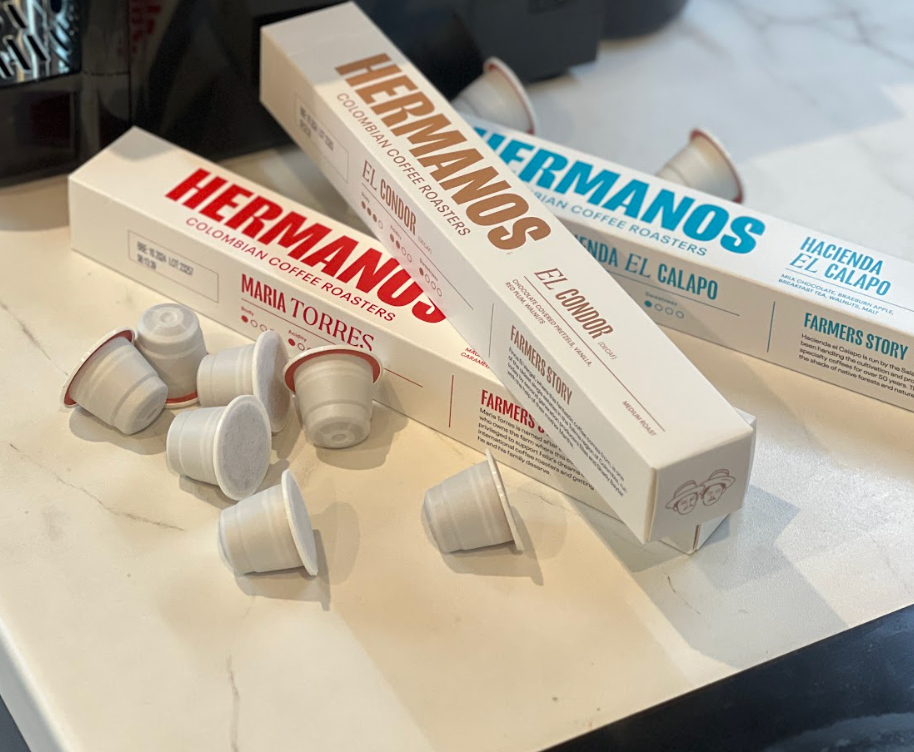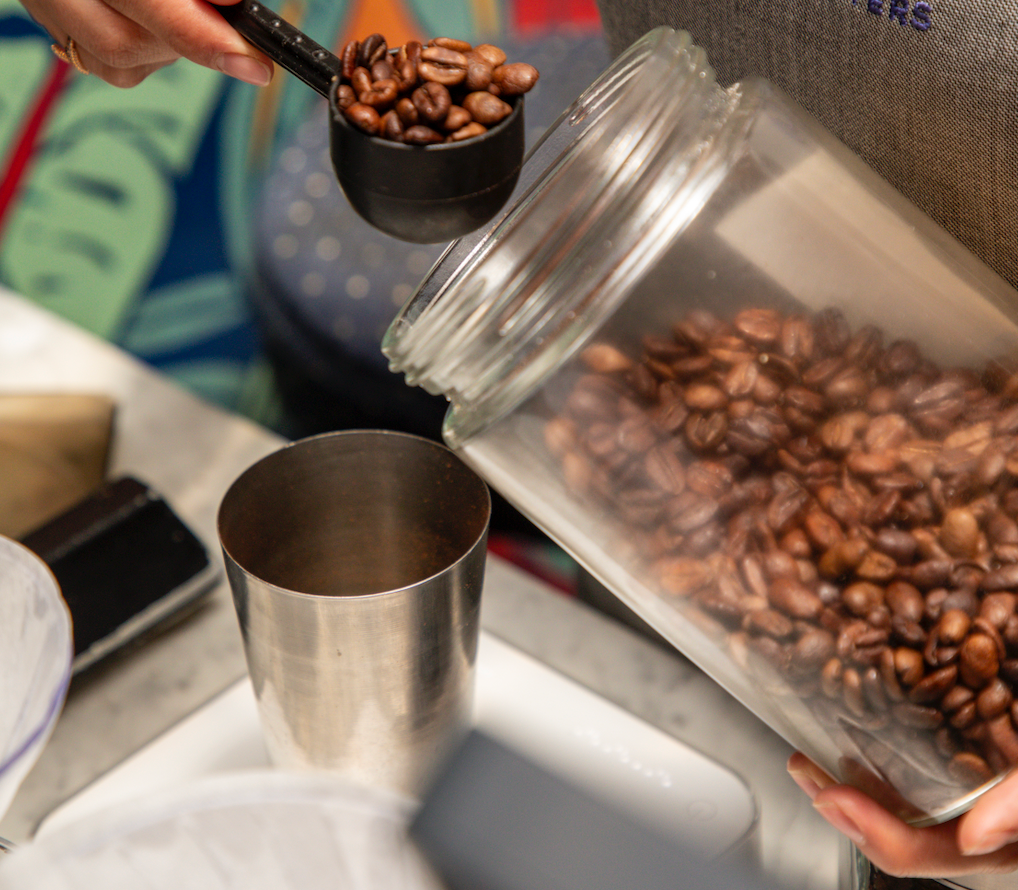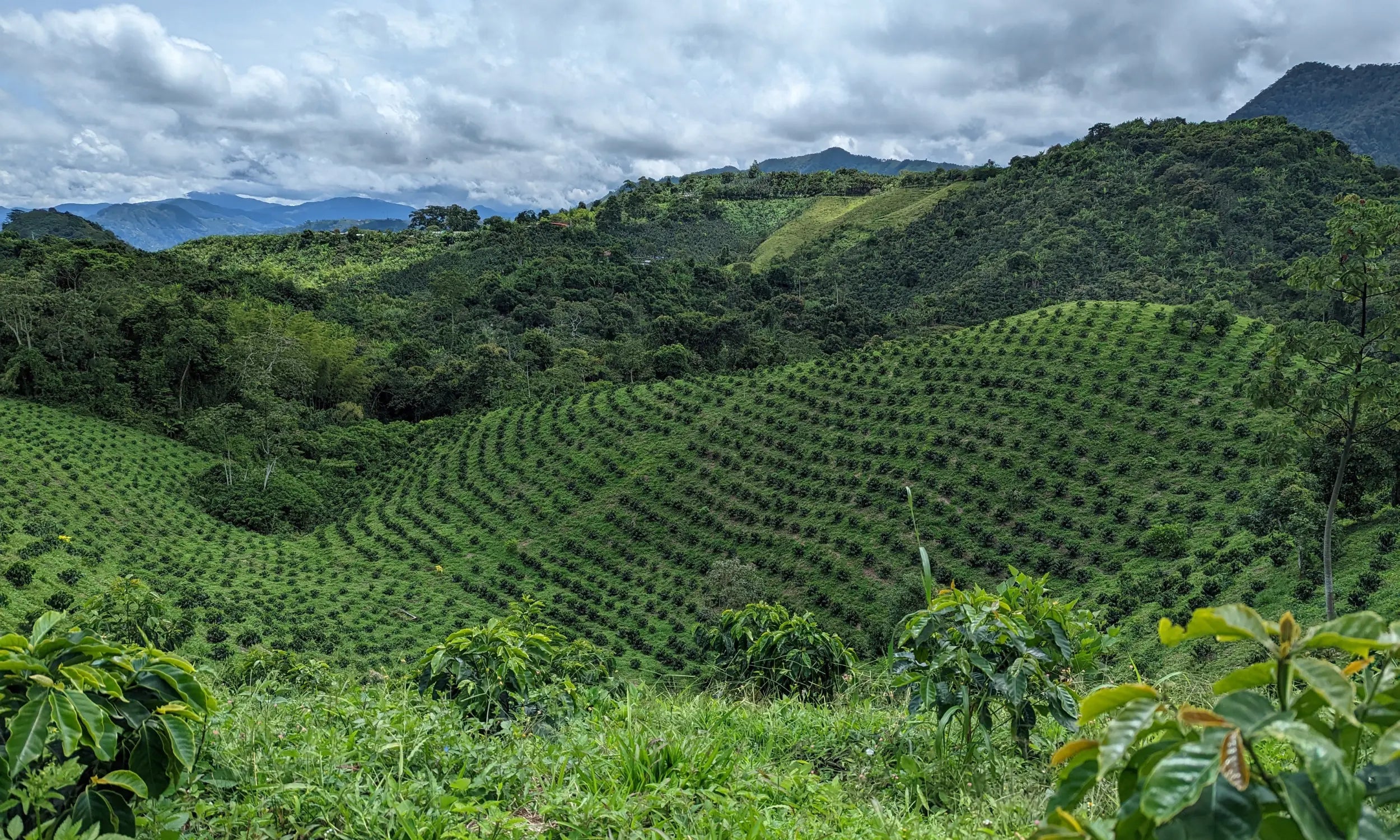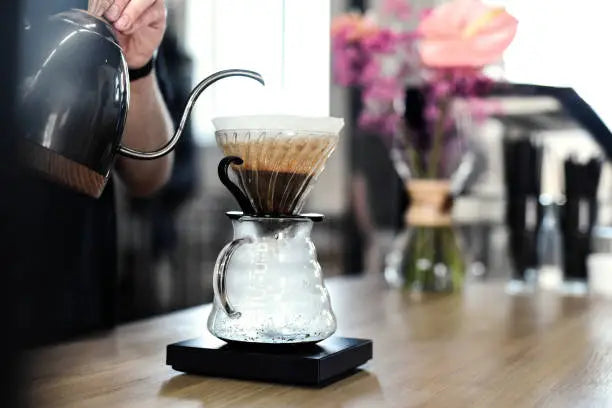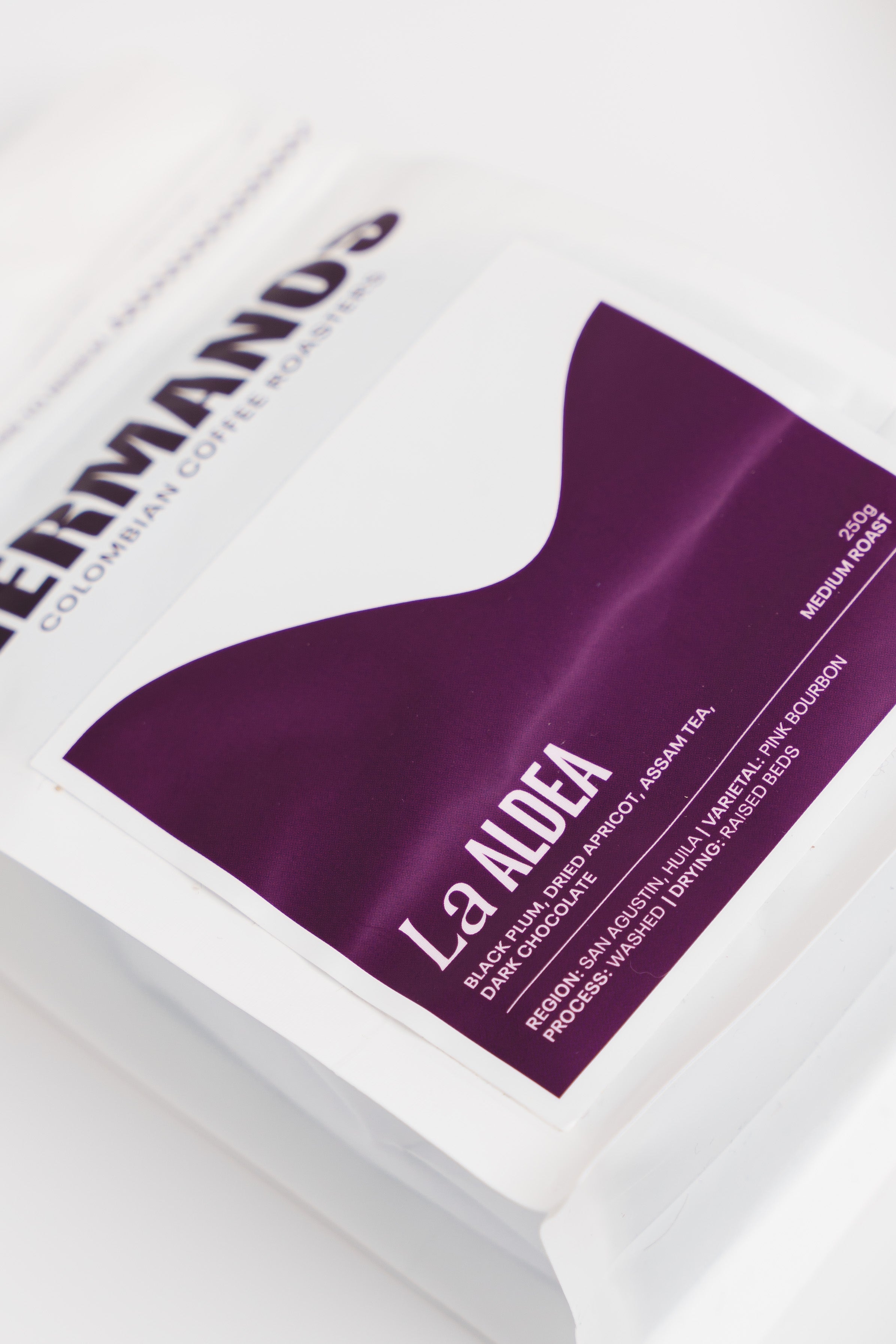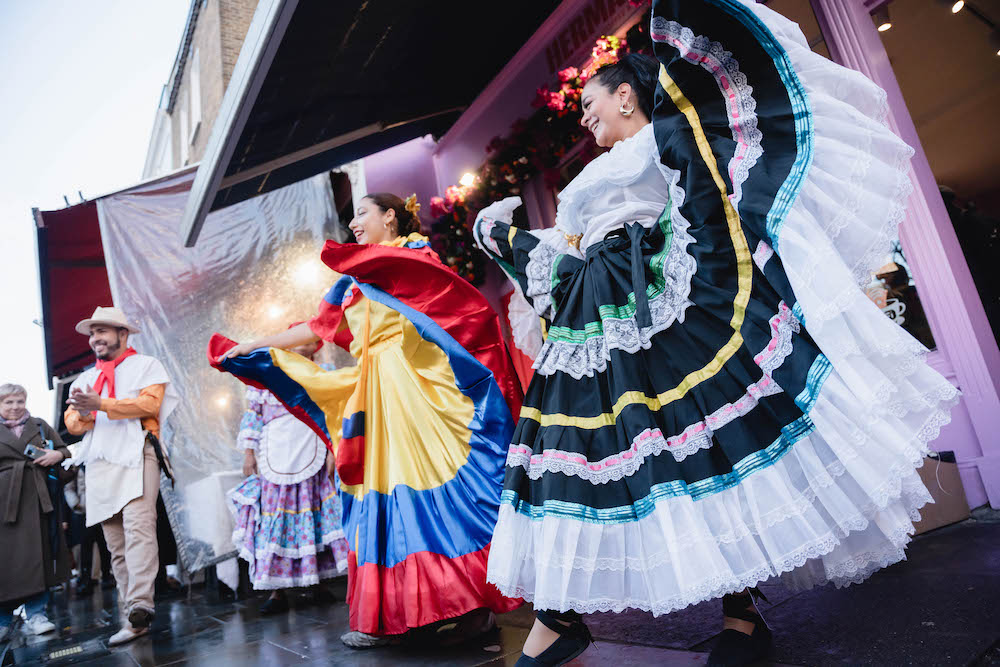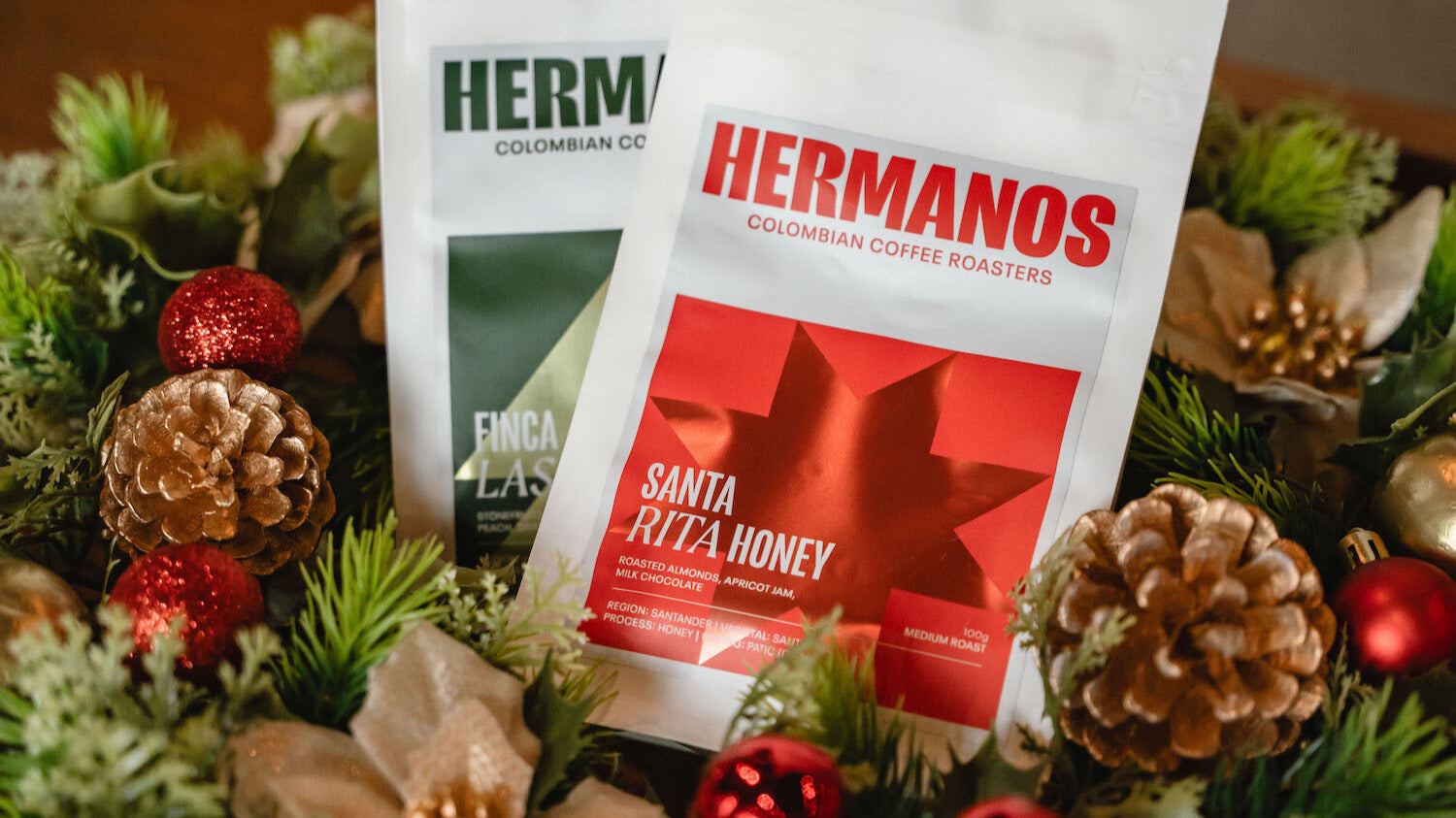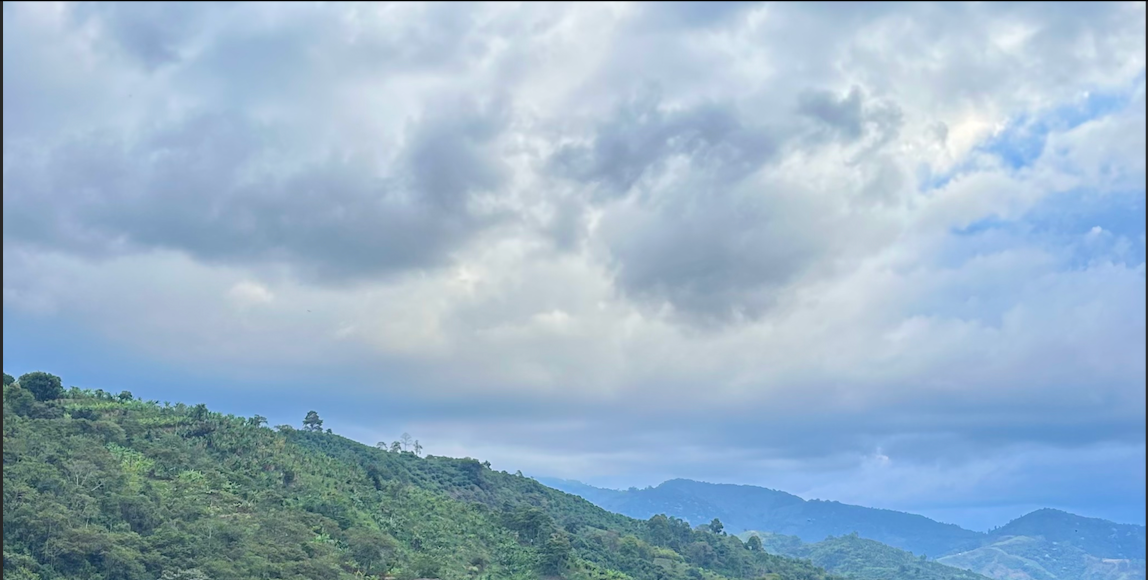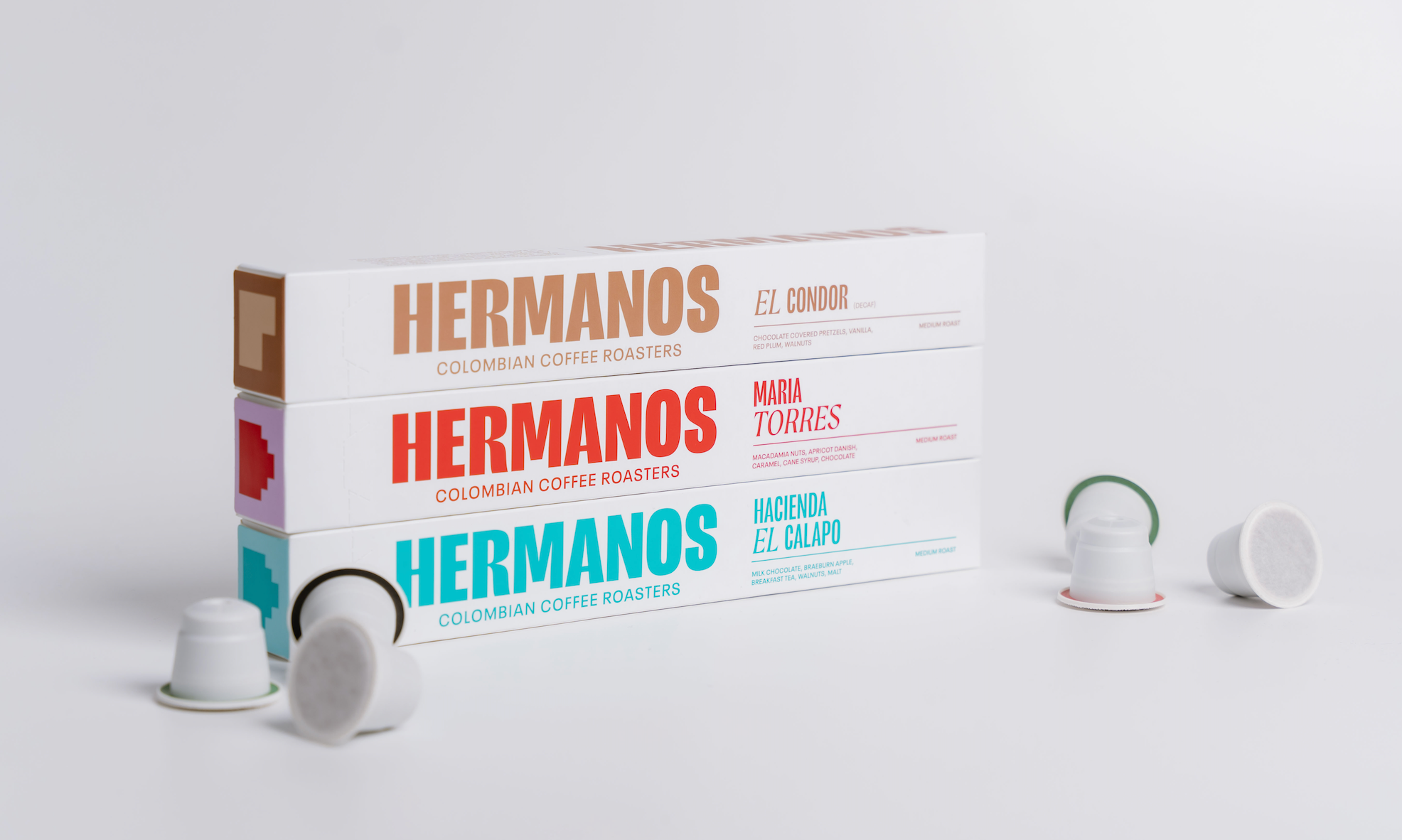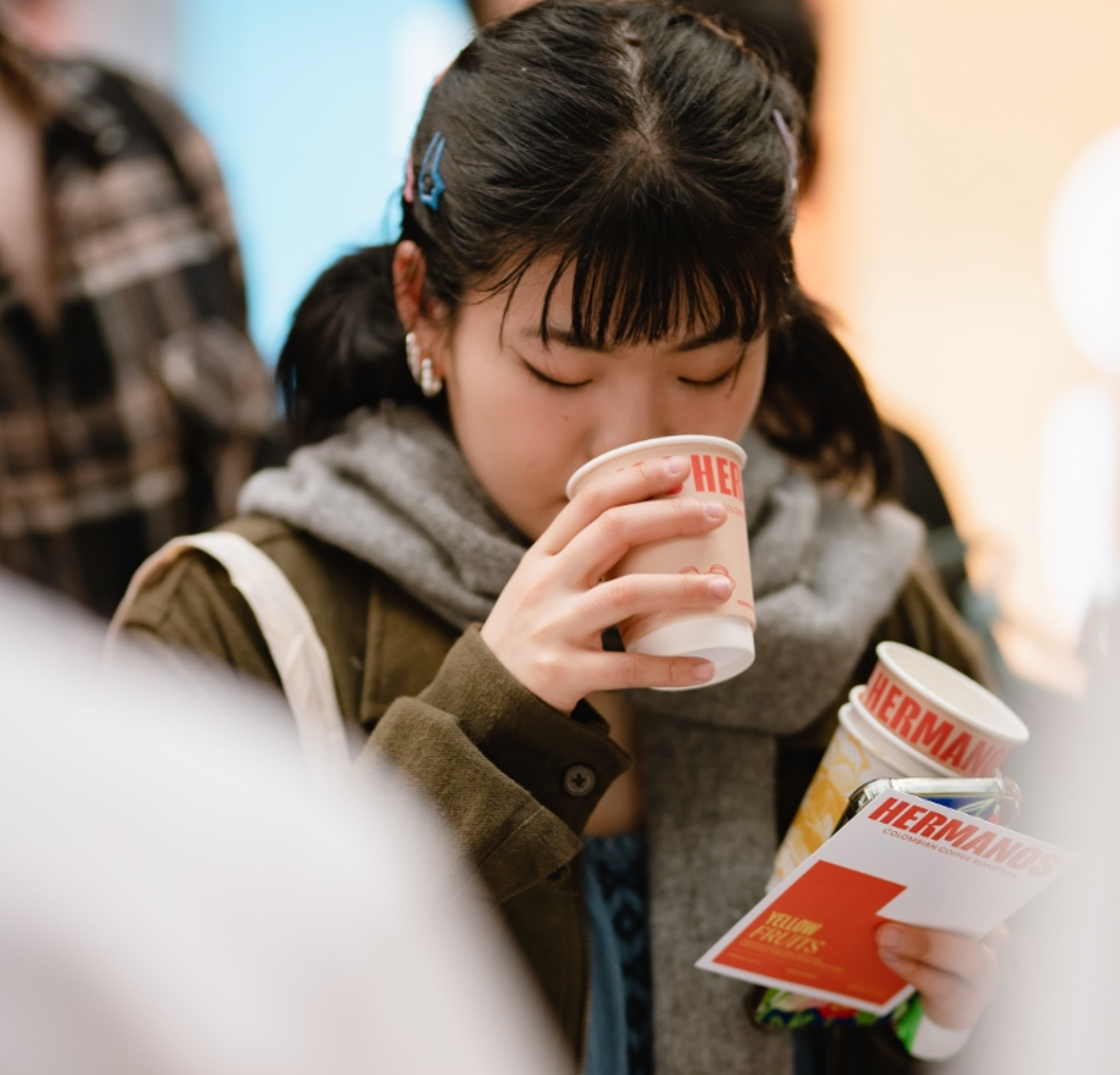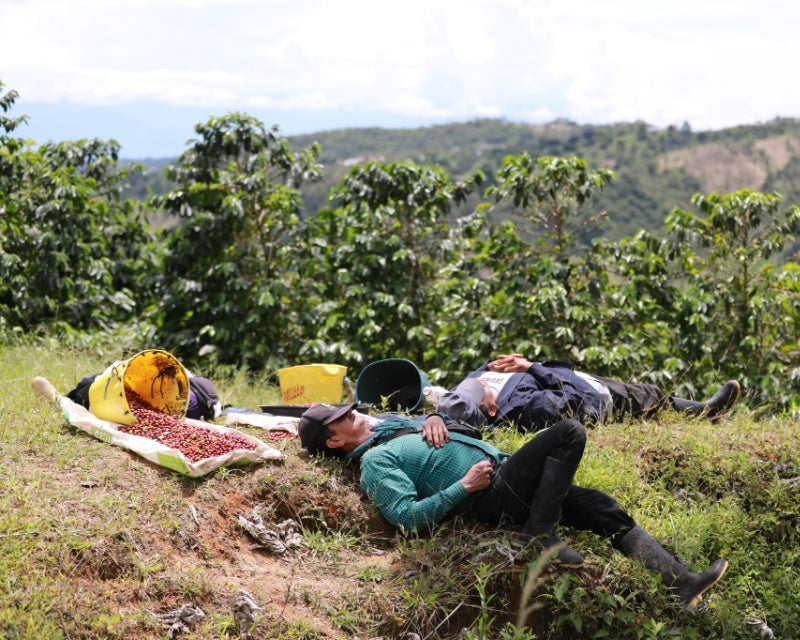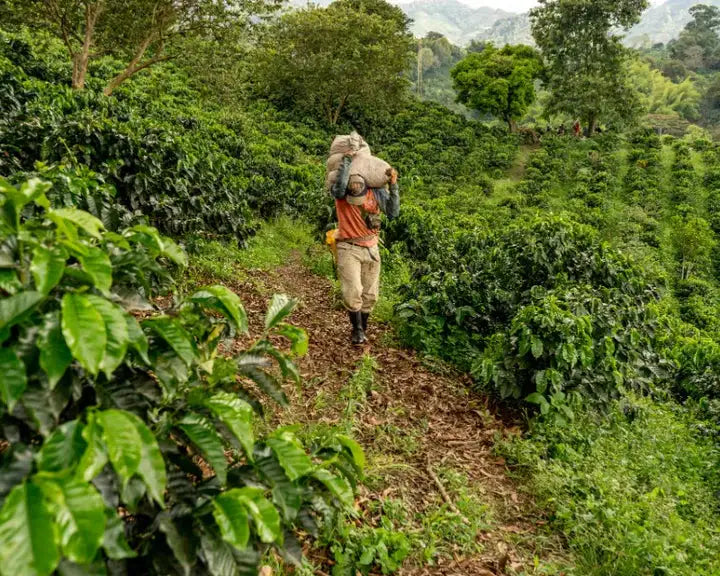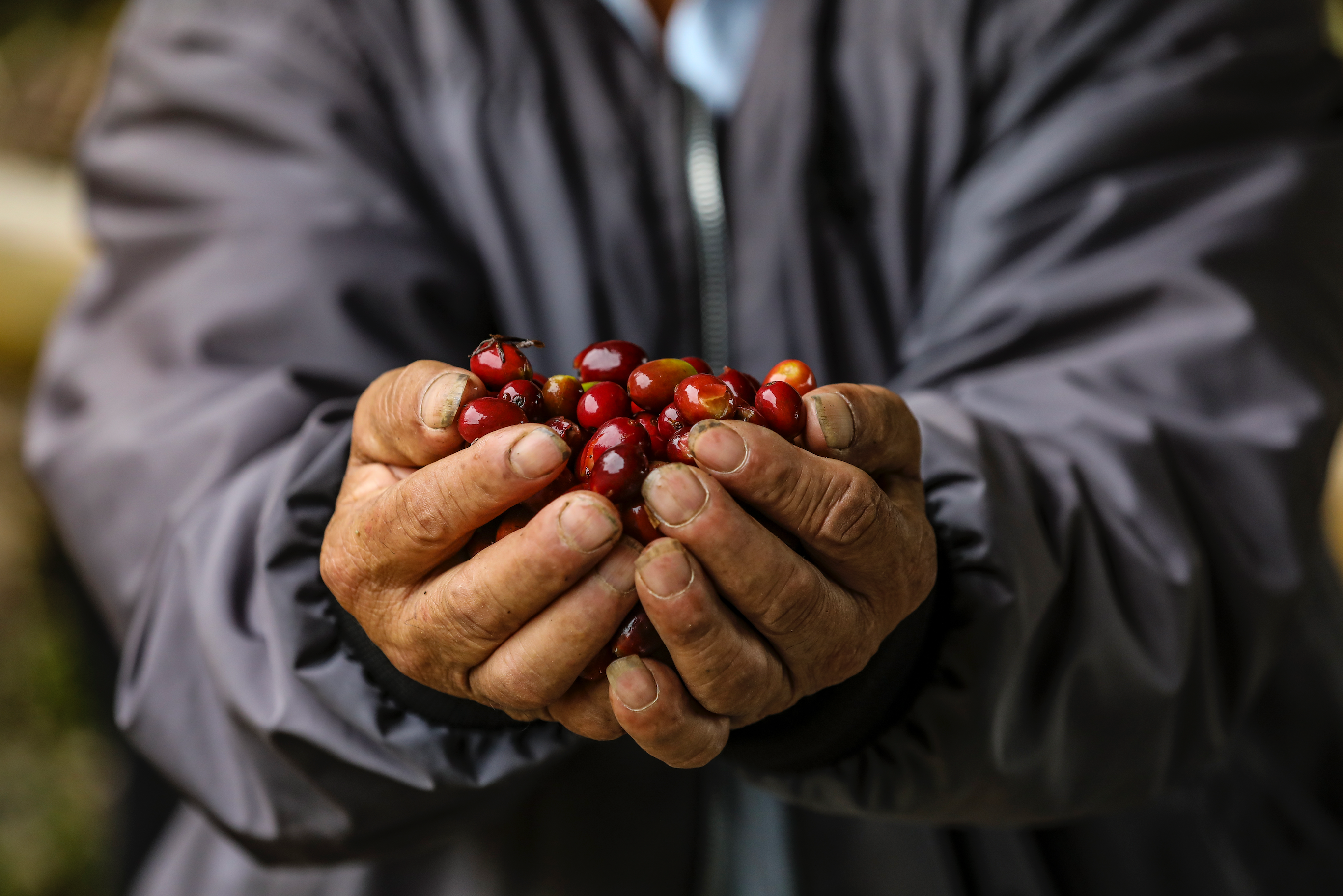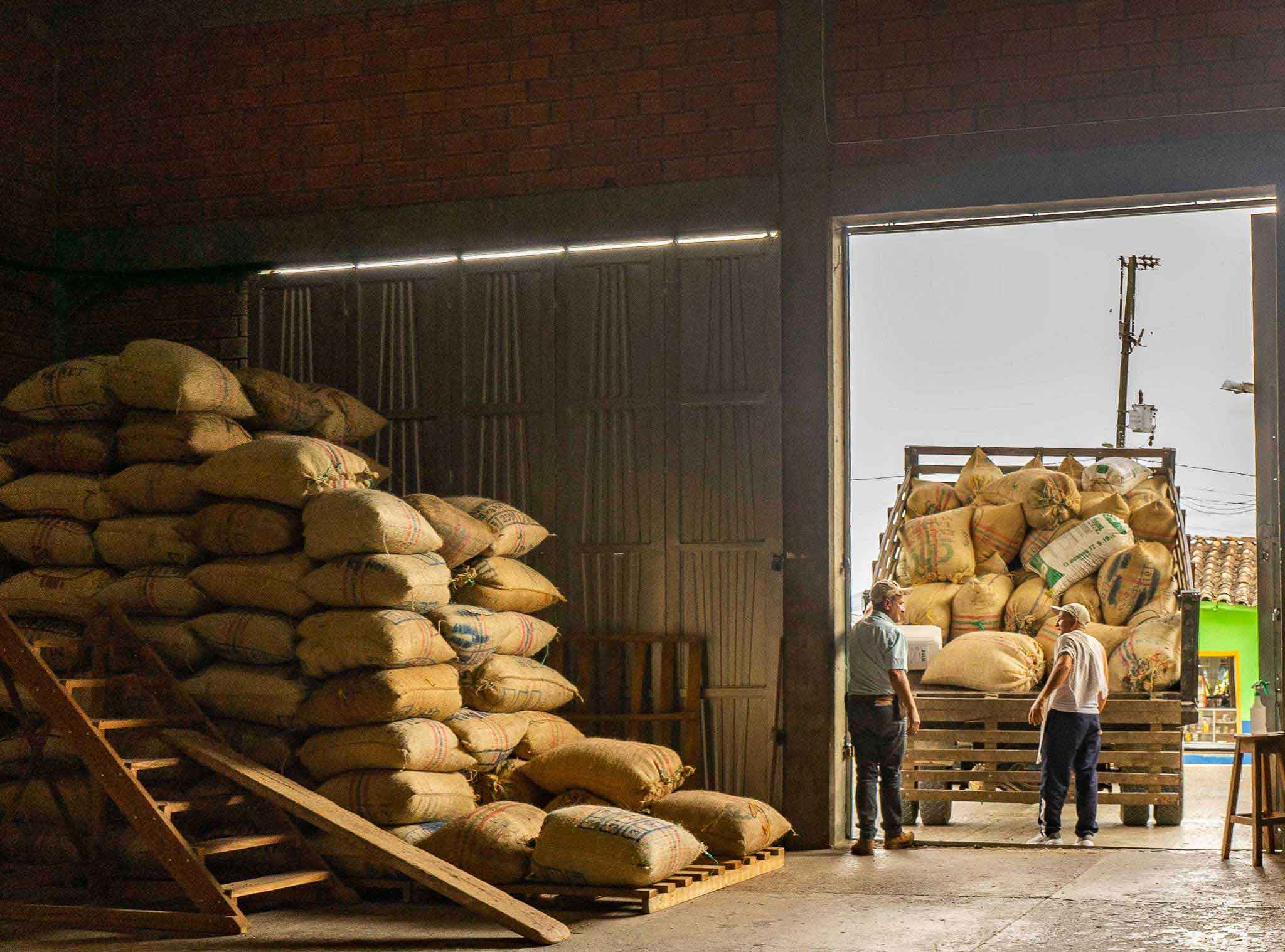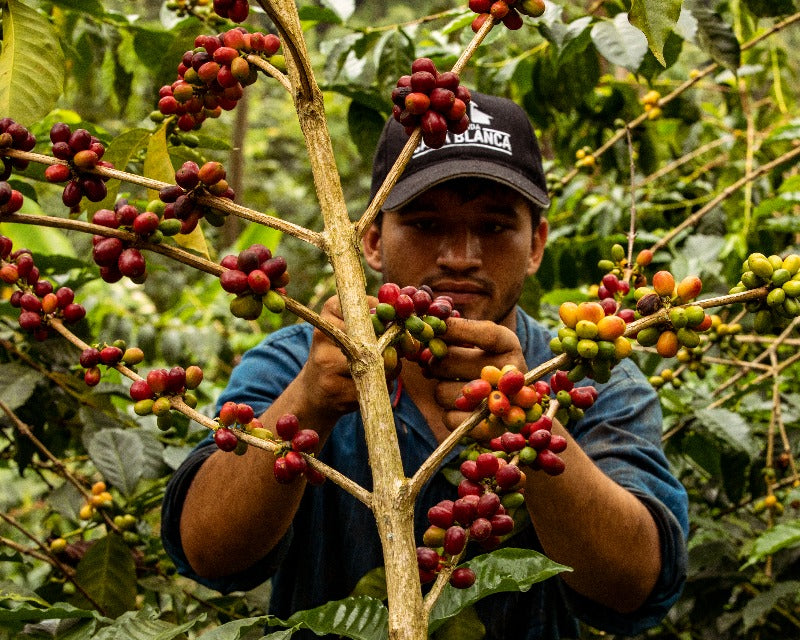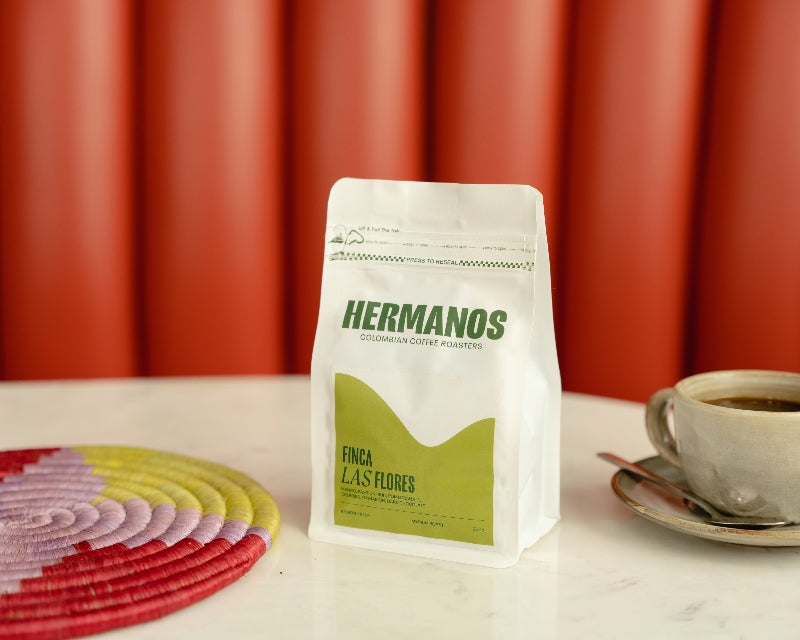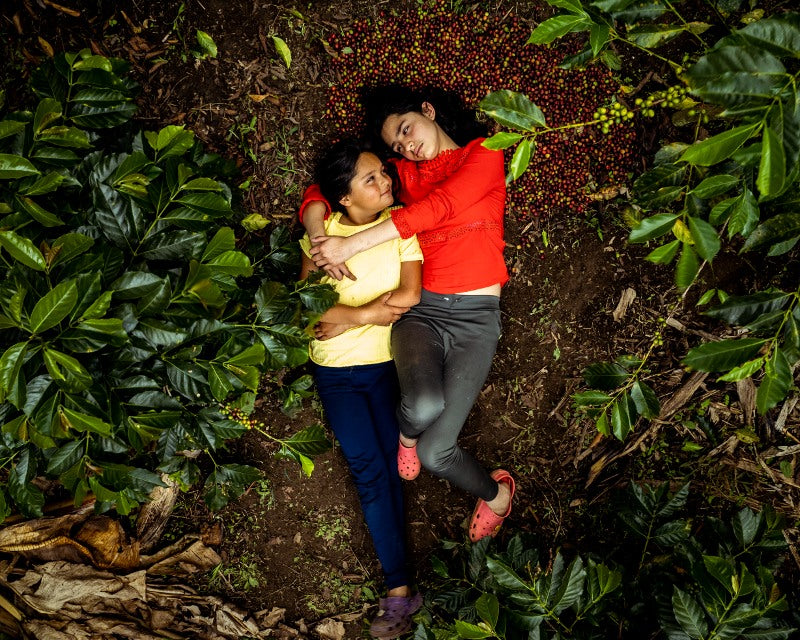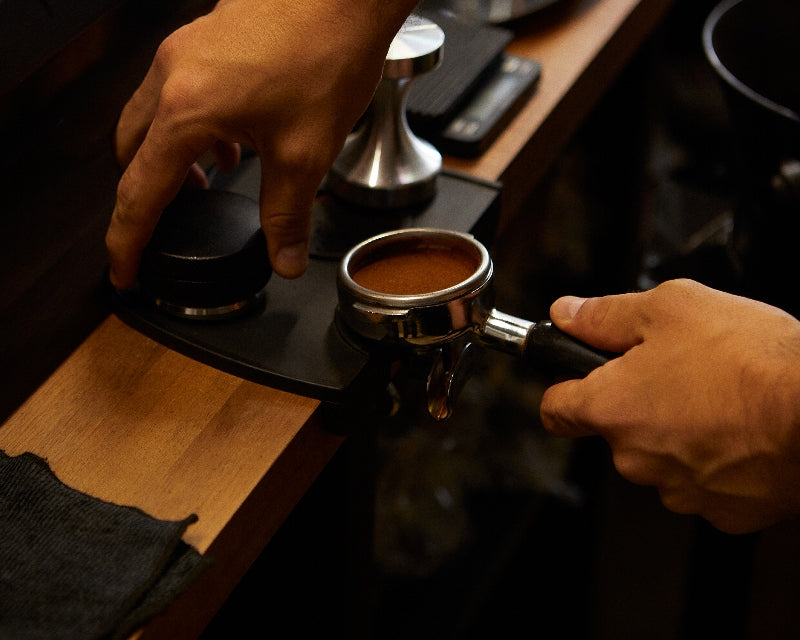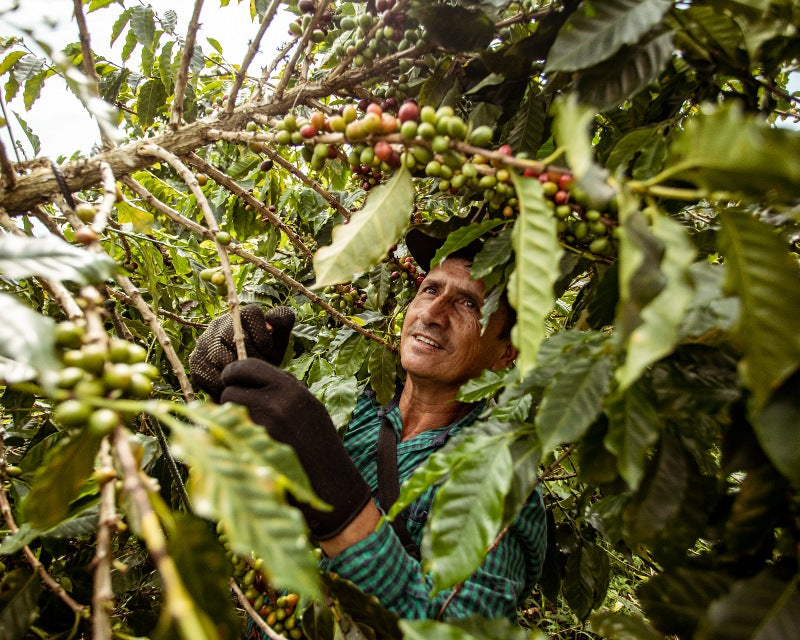Contents
-
What Is Ground Coffee?
-
What Is Instant Coffee?
-
How Is Instant Coffee Made?
-
Ground Coffee vs. Instant Coffee: the Key Differences
-
Why We Prefer Ground Coffee
-
Final Thoughts and Takeaways
If you’re looking to brush up on your coffee knowledge or want to make the change from instant coffee to ground coffee, then you’re in the right place.
In this post we explore the many differences between ground coffee and instant coffee, including the type of beans typically used for each, caffeine content, shelf life, taste, and the way these coffees are brewed.
What Is Ground Coffee?

Ground coffee is what you end up with after grinding whole roasted coffee beans. You can find pre-ground coffee in many shops and supermarkets or you can grind it yourself at home either with an electric or hand grinder.
The more you process the coffee, the finer the particles will get, and each grade, or level, will be more suited to a particular type of brewing.
|
Fine
|
Smooth particles about the same size as sugar or salt granules.
|
Espresso Machine
|
|
Medium-Fine
|
Slightly grittier particles
|
Aeropress
|
|
Medium
|
Crumbly particles that are about the size of coarse sand.
|
Pour Over
|
|
Coarse
|
Chunky particles of coffee that are about the size of crushed salt.
|
French Press
|
What Is Instant Coffee?

Instant coffee and ground coffee are often assumed to be the same thing, but in reality they are very different in nearly every way, including how they are made and the coffee actually tastes once brewed. Both ground and instant coffee come from coffee beans, but the latter is a kind of pre-brewed, dried and powdered coffee concentrate, making it much further removed from the initial beans.
Instant coffee and ground coffee are often assumed to be the same thing, but in reality they are very different in nearly every way
How Is Instant Coffee Made?
The way that instant coffee is made is not dissimilar to the process for ground or whole coffee beans — in the initial stages.
Once coffee beans have been roasted, they are ground and brewed to make highly concentrated coffee, and are then dried and powdered. There are variations within this method, such as more expensive instant coffee brands opting for freeze-drying over spray-drying, which preserves the granules of coffee better, therefore retaining a flavour closer to that of the original coffee bean.
The most common (and cost-efficient) way to collect coffee crystals is by spraying them inside of a large tower circulating warm air in order to remove water content. Once dry, they are gathered at the bottom of the tower to be collected and packaged.
Ground Coffee vs. Instant Coffee: the Key Differences

Caffeine Content
Although it varies depending on the specific brand or type of coffee you buy, ground coffee tends to have a higher caffeine content than instant coffee.
A cup of instant coffee comes in at between 60-80mg of caffeine, whereas a freshly-brewed coffee made with grounds comes in at anywhere between 80-120mg caffeine.
The reason for this is because caffeine is extracted from the ground coffee during the brewing process. And the longer you extract for, the more caffeine the coffee will retain.
This also means that you have more control over the amount of caffeine you consume when using ground coffee, as you can choose how long you brew your grounds for (increasing or decreasing caffeine levels), and how much ground coffee you use when brewing in the first place.
Flavour/Quality
Every coffee bean is unique and has its own flavour profile. However, there are differences between instant and ground coffee that can be attributed to the way that they’re made, and the type of beans commonly used for each.
Instant coffee tends to have a higher caffeine content, but much lower sugar and fat content (because the beans used are typically Robusta, not Arabica), resulting in a bitter and earthy flavour that is easier to tolerate when mixed with sugar and milk. Additional flavour also comes from the way that instant coffee is dried and cooled, which not only reduces the “purity” of the product in our eyes, but also destroys much of the original flavour of the coffee.
If you're an instant coffee user, try and opt for granules that have been freeze-dried rather than sprayed, as this will leave you with a higher-quality product.
Specialty coffee shops and roasters often strive to use single origin, sustainably sourced specialty coffee beans, which, as well as being more traceable and therefore better for the producer and environment, also results in a tastier coffee!
Discover Why The World Loves Coffee Arabica
Type of Bean Used
Instant coffee is usually made with low-grade Robusta beans, whereas ground coffee is more likely to use Arabica beans (although a lot of supermarket-grade ground coffee will use Robusta or a blend of the two).
-
Robusta is used in instant coffee for a couple of reasons. Firstly, a lot of caffeine is lost from beans during the instant coffee production process, meaning that a naturally high-caffeine bean is needed to balance this loss out. Robusta beans are also much easier and more inexpensive to produce than Arabica, meaning that large volumes of coffee can be harvested year-round.
-
Arabica beans are known for offering a more complex and delicate taste than Robusta. This is particularly suited to ground coffee and the specialty coffee world where roasters look for subtle and unique coffee notes, such as berries or citrus fruits. Arabica beans can vary greatly as well, depending on their country of origin, growing conditions, how they are processed, and how they are roasted, amongst other things.
Both Robusta and Arabica have their place in the global coffee market, but in the world of specialty coffee, there is a strong preference for single origin Arabica (although there are exceptions to this in countries such as Indonesia or Vietnam, where Robusta is sometimes favoured).
Arabica beans are known for offering a more complex and delicate taste than Robusta. This is particularly suited to ground coffee and the specialty coffee world where roasters look for subtle and unique coffee notes, such as berries or citrus fruits
Read more about the differences between Robusta and Arabica here
Brewing Method
Ground coffee can be brewed using a number of methods, namely immersion, pressure, or drip/pour over brewing.
Immersion brewing involves submerging coffee grounds in water for up to 5 minutes, and then separating the grounds from the liquid. It is most common when using a French Press or an AeroPress. Drip/pour over is another popular way of brewing ground coffee, which involves pouring hot water over ground beans using a filter and equipment such as a V60 or Chemex.
Pressure brewing is another way to make coffee using grounds, and is most typically done using an espresso machine. However, you can also use a Moka Pot to make something very similar to espresso. Pressurised water is pushed through ground coffee and a filter, leaving behind the grounds and letting the liquid pass through.
Instant coffee, on the other hand, does not need to be brewed at home as it has already been brewed during the production process. All you have to do is mix the granules or powder with hot water and you have a coffee.
Shop Our Range Of Coffee Brewing Accessories
Shelf Life
One of the pros of instant coffee is that it has a much longer shelf life than ground coffee does. Coffee beans, once ground, should be used up as quickly as possible to avoid becoming stale and losing a lot of their flavour and aroma. We recommend grinding your whole beans as and when you want a coffee for optimum freshness, or if you buy your beans already ground, try keeping them for no longer than 30 days.
Price
Another thing that makes instant coffee so appealing is that it usually has a low price point in comparison to some specialty ground or whole coffee beans. However, you do get what you pay for, and the higher cost that you see with specialty single origin coffee is down to growers being paid fair wages for their work and the cost of growing and processing beans to the highest quality.
Why We Prefer Ground Coffee

Perhaps we’re a little biased, but we would always choose ground coffee over instant coffee. Although an instant brew comes out on top in terms of cost and convenience, the flavour and quality of freshly ground Arabica coffee cannot be beaten.
There is so much choice out there when it comes to ground coffee, and each bean will have its own unique flavour profile. If you’re coffee shopping and aren’t sure what to go for, we would always advise you to go for specialty grade, single origin Arabica beans.
We love single origin coffee because it allows us to trace the farm or micro-lot that the beans were grown on, as well as know that the coffee growers, in theory, are being compensated and appreciated for their work.
There is also the possibility when beans from different locations and farms are blended that you lose some of the original qualities of each bean that many farmers work so hard to preserve. For us, it’s all about creating long-lasting and mutually beneficial relationships with Colombian farming communities, and we can ensure that this is happening by keeping our coffee single origin and specialty grade.
The Differences Between Single Origin And Blends
Final Thoughts and Takeaways

There are times when what you need is instant coffee, we understand that. But we also know there are other times when you'll want to put some time and love into your morning coffee and use fresh grounds.
For a first time buyer, opt for an everyday coffee that can be brewed using the equipment you have available to you at home. If you’re new to brewing accessories as well, a French Press or V60 are both easy to use.
There are some incredibly complex and deliciously tasting beans out there, but when you’re making your first step into ground coffee territory from instant coffee keep things simple and look for tasting notes you know you love, such as chocolate or nuts.
Instant coffee has many good qualities, not least of which being the convenience and ease of use. However, switching to ground coffee beans means making more conscious and sustainable consumption choices, and will level up your at-home coffee game!
For an easy-to-drink and crowd pleasing bean, try our El Fresno coffee!
Discover Our Brew At Home Guide





